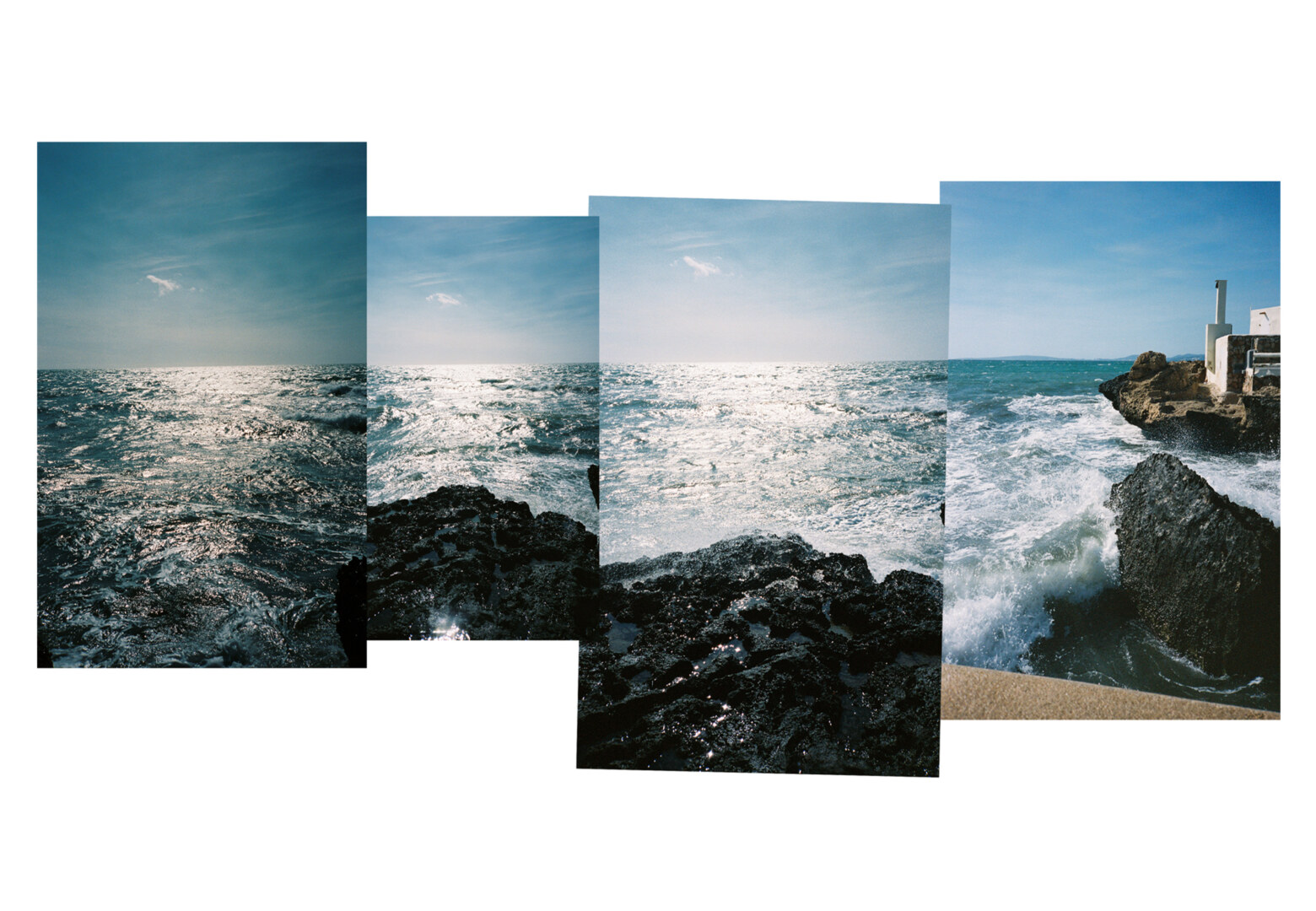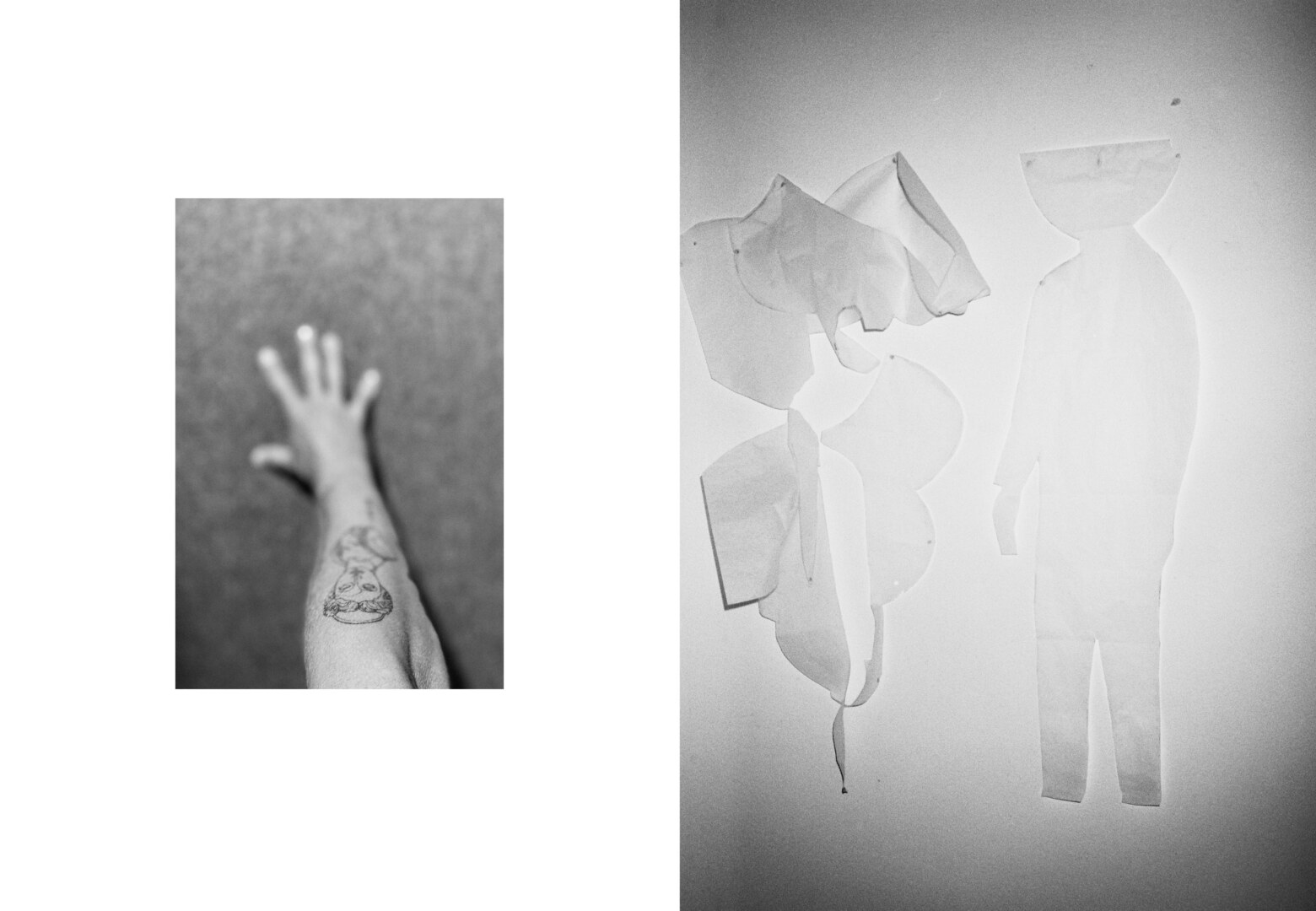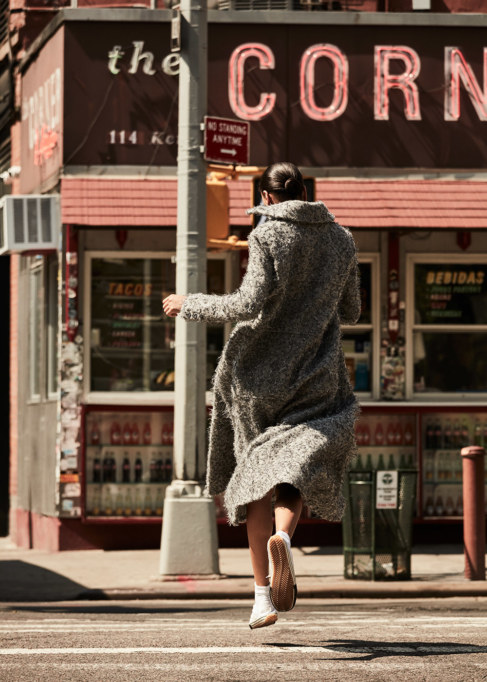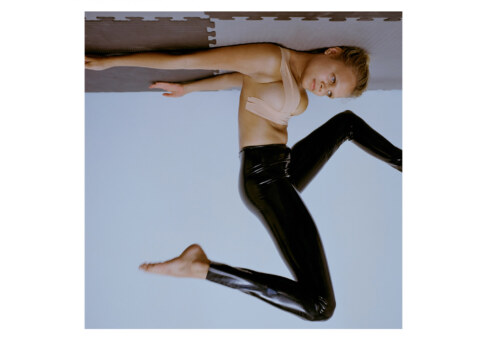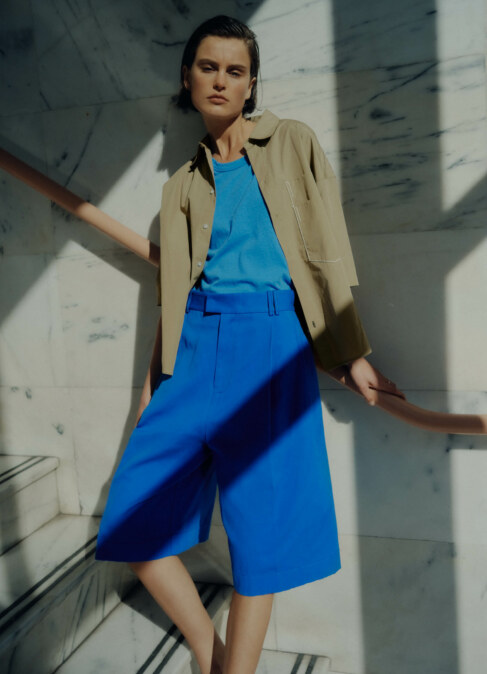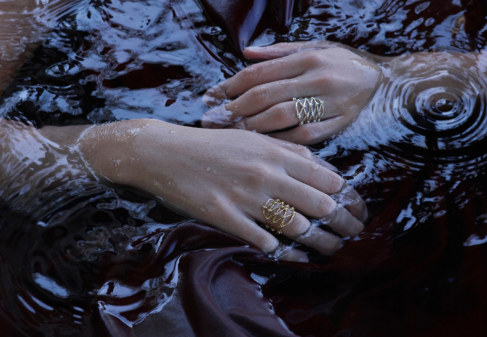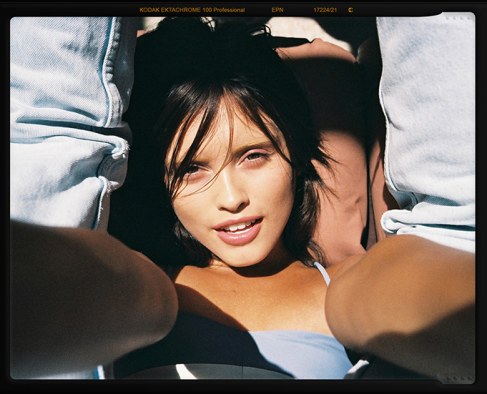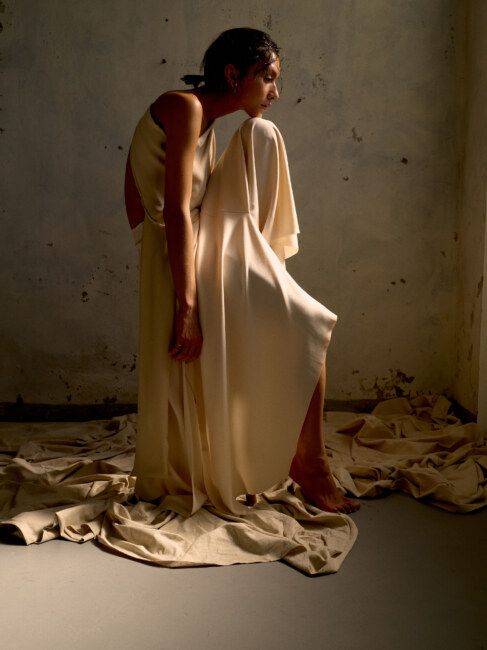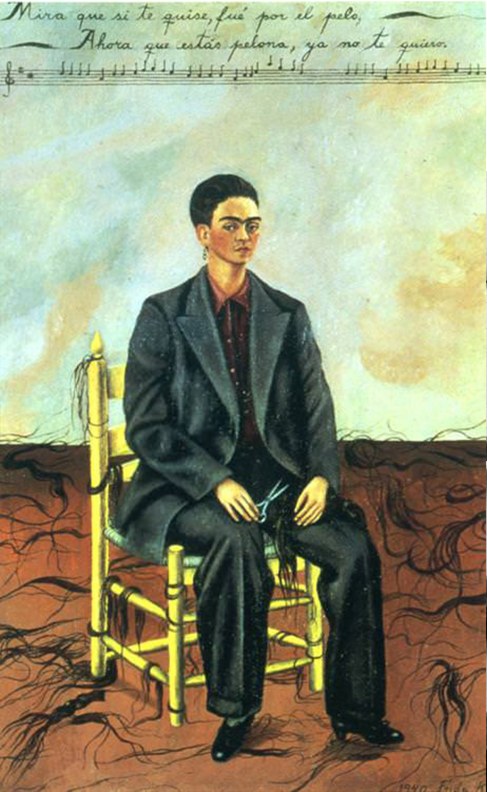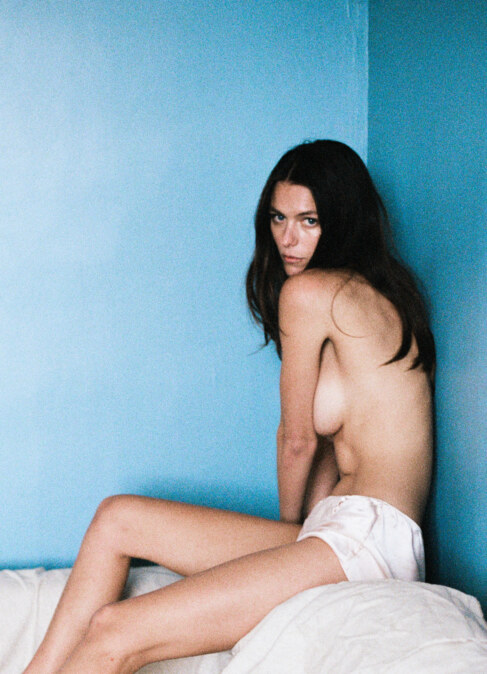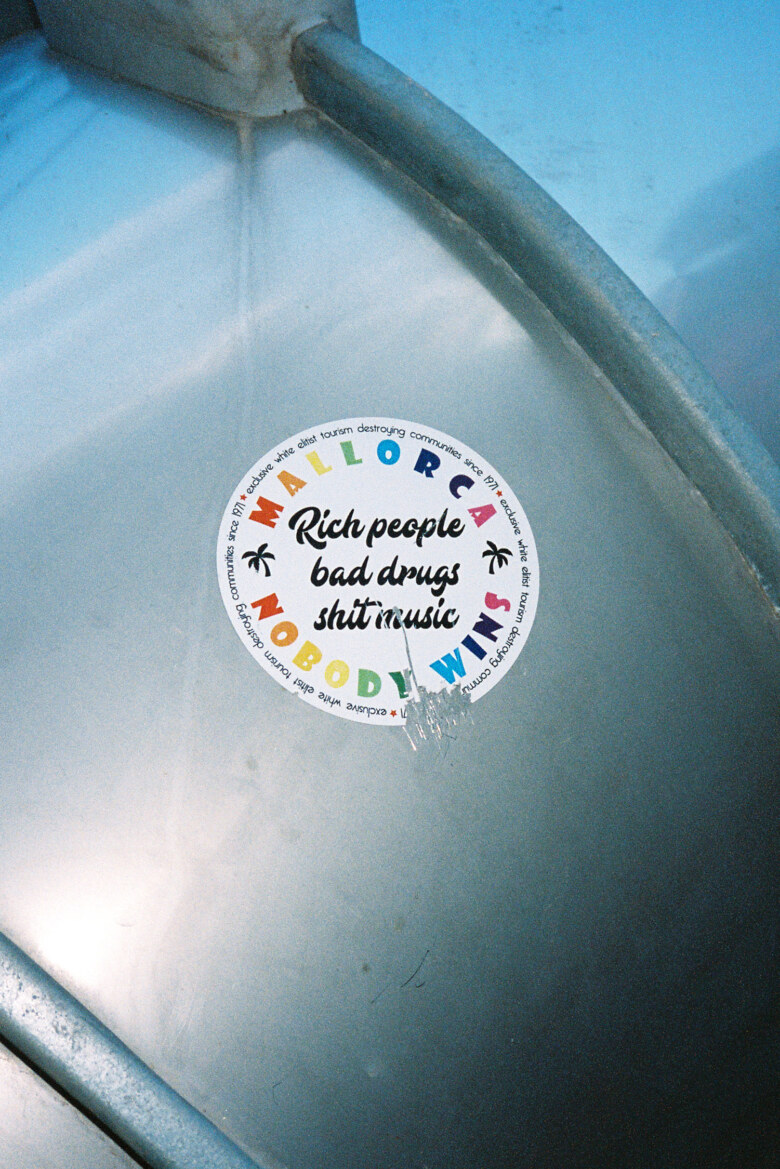
MALLORCAN YOUTH CULTURE BY BEN MORRIS
PHOTOGRAPHY & ARTWORK: Ben Morris @ M.A.P
CASTING, TRANSLATION & PRODUCTION ASSISTANCE: Nina Cohen
WRITTEN BY: Ben Morris @ M.A.P
Special thanks to Ben Hams @ M.A.P
Mallorca is a small island in the Mediterranean Sea, it is the largest island of the Balearics, and the capital of Mallorca, Palma is also the capital city of the Balearic Islands.
The Balearics have been an autonomous region of Spain since 1983, the local language is Catalan, or for many older generations Mallorquin (a local dialect of Catalan is spoken).
For an island that only has around 400 Thousand permanent residents throughout the year, and geographically is less than 100km is length from East to West, Mallorca has one of the busiest airports in Spain. In 2019 alone, over 14 million tourists visited Mallorca, 7 million of whom came from Germany.
Mallorca is joking referred to as Germanys 17th Federal state due to the high numbers of German tourists who frequent the Island.
Mallorca has an incredible blend of cultures especially between different families who have lived on the island for generations. Young people living in Mallorca today, have long since cast away the traditions of the Island, which existed way before mass tourism began sweeping the island in the 1970’s.
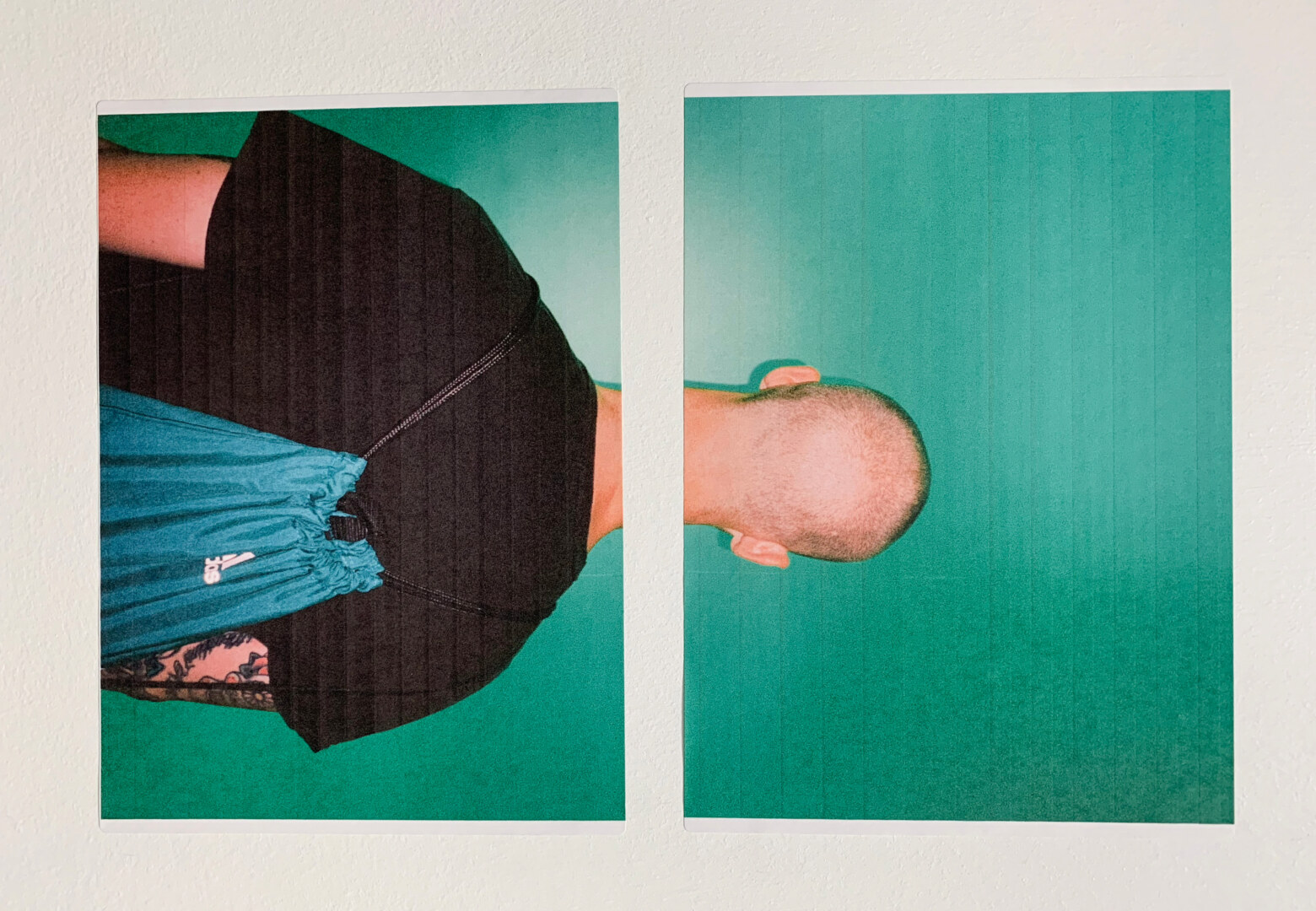
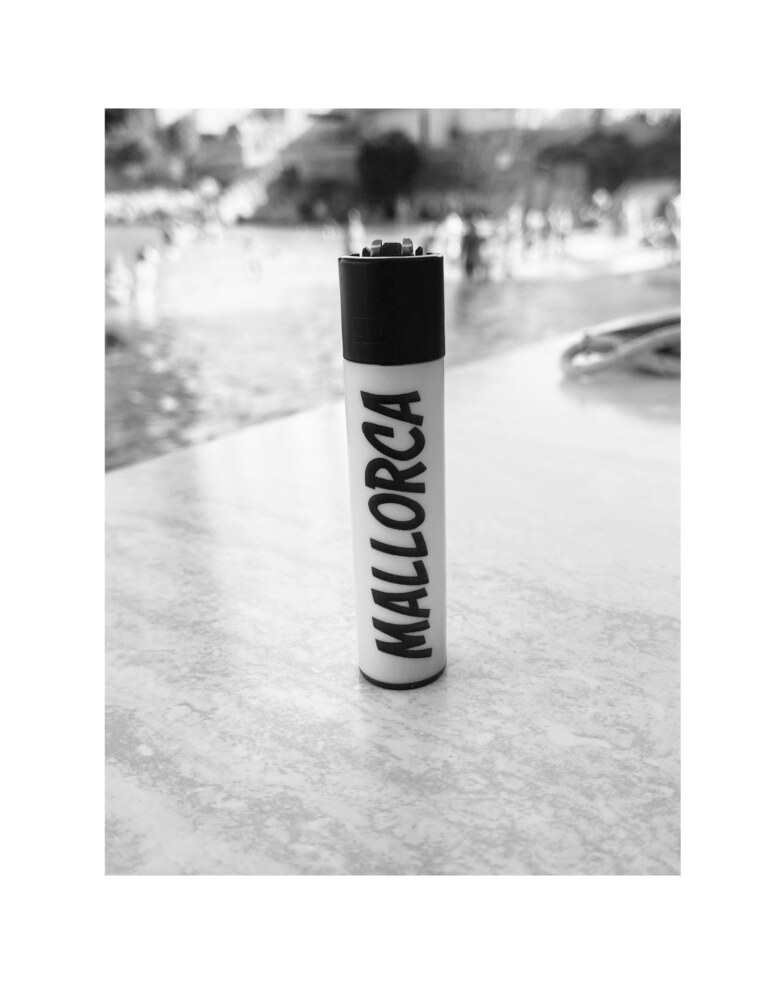
Visitors to Mallorca come from all over the world, and of course each person is there for their own reasons. Despite Mallorca being vastly rich in history and culture, it is perhaps more often known as an island for tourists, especially those from the United Kingdom and Germany who frequent the Island from May through to end of September.
Many come for either the decadence of the grand beachside villas, others to take advantage of the cheap drugs and alcohol in the self made resorts of Magaluf (designed and built specifically for English People) or Arenal (designed and built specifically for German people). These 2 resorts, almost equidistant, but in the opposite direction from each other when turning out of the car park from the airport – in order to keep Germans and the British apart from one another – are quite literally exact replicas of an average town in each respective country, from the shops on the high streets selling British and German branded food, to the fact in these towns, nobody speaks the native tongue of the island.
For many tourists who visit Mallorca, it is for a week or two’s summer holiday in a resort they barely leave surrounded by gigantic billboards advertising beach clubs and a lifestyle which isn’t real, in so much as proving any Epicurean theory about how many of us choose to live our lives, especially when on holiday, a cold drink in hand, sun beating down, thinking of how to get the best angle of this experience for social media. A quick social media geotag search led me to find that ‘Debbie’ from Hull, in the North of England, who works as an account manager for a haulage company for the other 50 weeks of the year, described her “2 week paradise living like Nicki Minaj” underneath a picture of herself and friends eating a fried breakfast at a cafe called ‘Linekers Bar’ in Magaluf (named after, and owned by the brother of, Ex English football captain Gary Lineker.
Mallorca however, is not this place.
Thankfully most people wanting to escape the rain and cloud of northern European summer months get herded onto giant buses directly at the airport and driven along the motorway where they can eat bacon, sausages and hot chips without ever having to utter a word in Spanish, or heaven forbid, Catalan. All the creature comforts of home, and after 2 weeks of daily lobster skin red sunburn and hangovers, most leave for the year and are herded back into the airport and onto a budget flight where the holiday for them ends and the banality of normal life resumes.
Often when one speaks of being in Mallorca this dystopia is in their first thoughts. Sadly few tourists see the beauty of the island, or would have ever heard of Joan Miró, or why he made it his home. The history of the art, music, literature and architecture of Mallorca is commonly misplaced by images of lush beaches and cocktails, implanted in our heads by so many years of television adverts, travel agents promotions or even more horrifyingly now, the British reality TV show “Love Island’.
My relationship with Mallorca spans since I first went as a teenager, in fact my first holiday away from my parents with my then best friend. It was a somewhat petrifying experience, being 16 or 17 years old booking a cheap holiday that we could afford and ending up close to Magaluf, where we got robbed on the first day by some English men in their 30’s, and spent the next 6 days trying to stop large drunken men climbing into our hotel room as it didn’t have a window. After that experience I never took a package holiday again, and for a few years thought to myself incredible so incredibly naively, that this was the Mallorca experience.
However I was quite wrong of course, having now spent so many months on the island they have added up to years, having got married in Mallorca and making friends for life who have over time showed me so much that I could now consider myself a local as soon as I land at PMI airport, a part of my heart is always there.
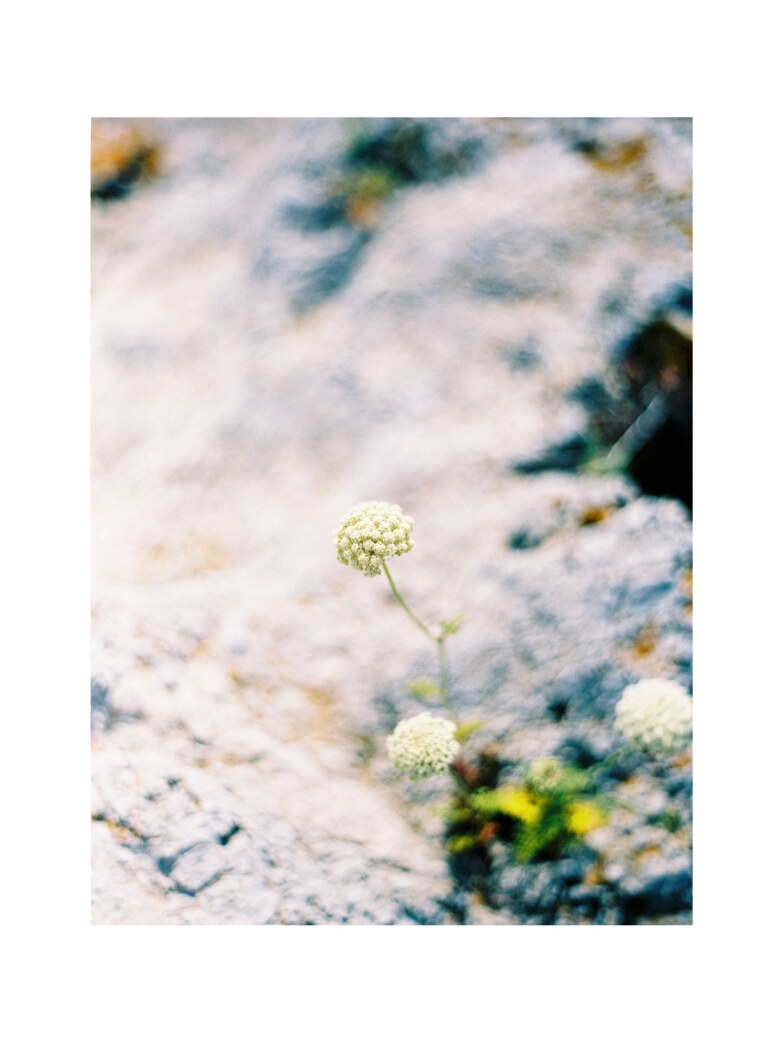
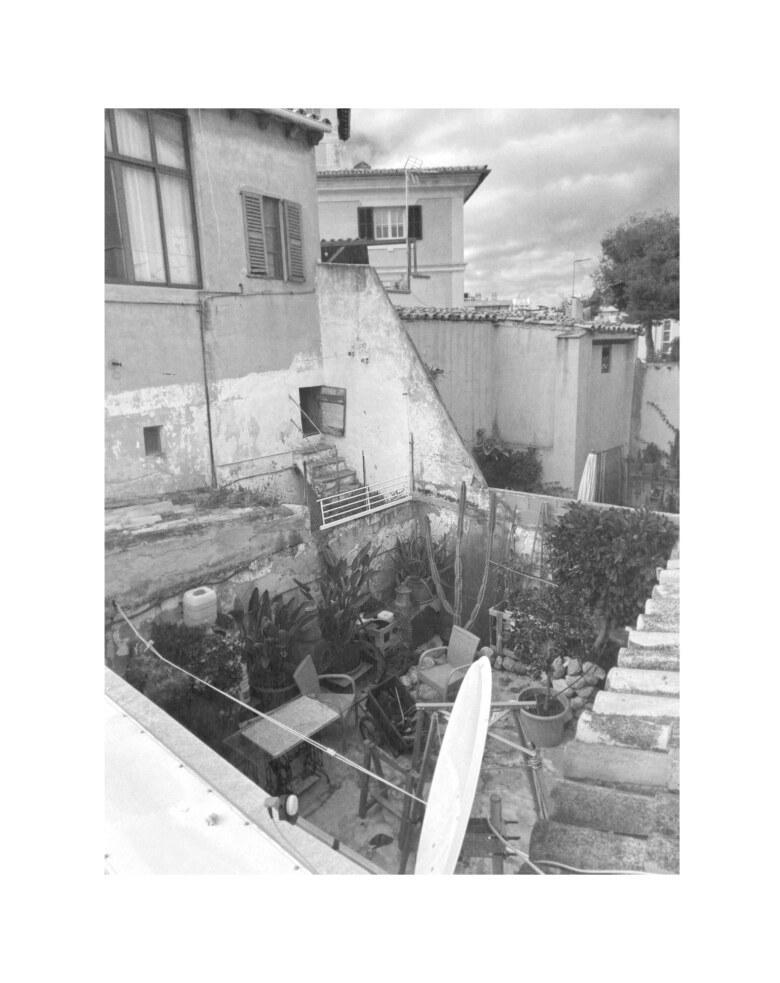
Mallorca was always the place we called home as a family. When we lived in New York, we would use any and every opportunity we could to be on the island, to recharge and to feel peaceful. Whilst Mallorca’s sister Ibiza often lays claim for having the most spiritual mountains in the mediterranean, having spent time in both, I know that for my soul I feel most at peace being surrounded by the gigantic overbearing mountains in Deià than perhaps anywhere else in the world.
My parents moved permanently to Mallorca around 15 years ago, which gratefully fractured part of my relationship with the U.K and meant for long periods of time myself, Candy and the boys have been able to grow up together as a family on this beautiful island. Nostalgia aside, were it not for this perhaps I would not have met so many of the beautiful and incredible people who live on the island than I have been fortunate enough to have done.
I met Claudia Mazzuccheli and Nessy Cohen in Palma in 2009. At the time they had a cafe and gallery on Avenue Argentina, in Santa Catalina, a short walk from the incredible Es Baluard Museu d’Art Contemporani and have called them lifelong friends ever since. Two wonderful and beautiful creative minds, who paint both separately and together, they opened up a whole side of the art world in Mallorca that I had perviously not known.
The summer that we moved to New York I held my first exhibition in Mallorca, documenting various works I had shot on different islands at their gallery, and for that I am forever grateful for their faith and belief.
Nina Cohen, their daughter who I collaborated and photographed for this project I have know since she was perhaps 10 or 11 years old. Nina helped to find the people I photographed for this project as well as translating my interviews from English into Spanish or Catalan and then back into English. I wanted to document a project showing what is like growing up and being in that stage of life where all ideas are exciting and possibilities are endless, on an island with such a schizophrenic personality.
This is what Mallorca is.
NINA COHEN, 22 YEARS OLD
Mallorca is a beautiful island, and over the past 40 years or so I feel that Tourists (specifically British and German) have devoured the island into something it is not. Growing up in Mallorca, and with 2020 being a year of very little to no tourists due to current travel restrictions, how would you describe your personal relationship with Mallorca to someone who has only viewed the island as a tourist destination?
Mallorca is a magical place. I really find that many young people who live here are not aware of how lucky they are. If I had to describe the island in two words they would certainly be FREEDOM and PEACE.
Recent studies show that a very large percentage of young creative people are shunning major cities, like London, Paris, New York or Madrid in favour of living somewhere quieter with a better quality of life. Having lived in London and Paris yourself, what are your thoughts on this?
I think that this is totally understandable. Leaving the island is necessary for mental health. It is necessary to leave in order to realize that there are many things to appreciate in Mallorca, whether you aware of them or you are not when you are here. In Mallorca of course there are not as many creatively stimulating things as in the mentioned big cities. However, even though France is the country that has most inspired me when writing, it is true that I need to return to the island from time to time to assimilate all that I have experienced and learned. The vision of the time is different from one place to another.
How would you describe the creative scene in Mallorca?
In Mallorca there is no lack of creativity or creative people. The difficulty is to find the right circle of people to surround oneself with in order to continue growing.
Where do you find your inspiration, for example in subculture do you look to the present, or the past? Do you look at home or abroad? (Be specific)
Life, love, fashion, words, summer kisses.
If you could change one thing about living in Mallorca, what would it be (in a general sense)?
The creative stimuli 100%
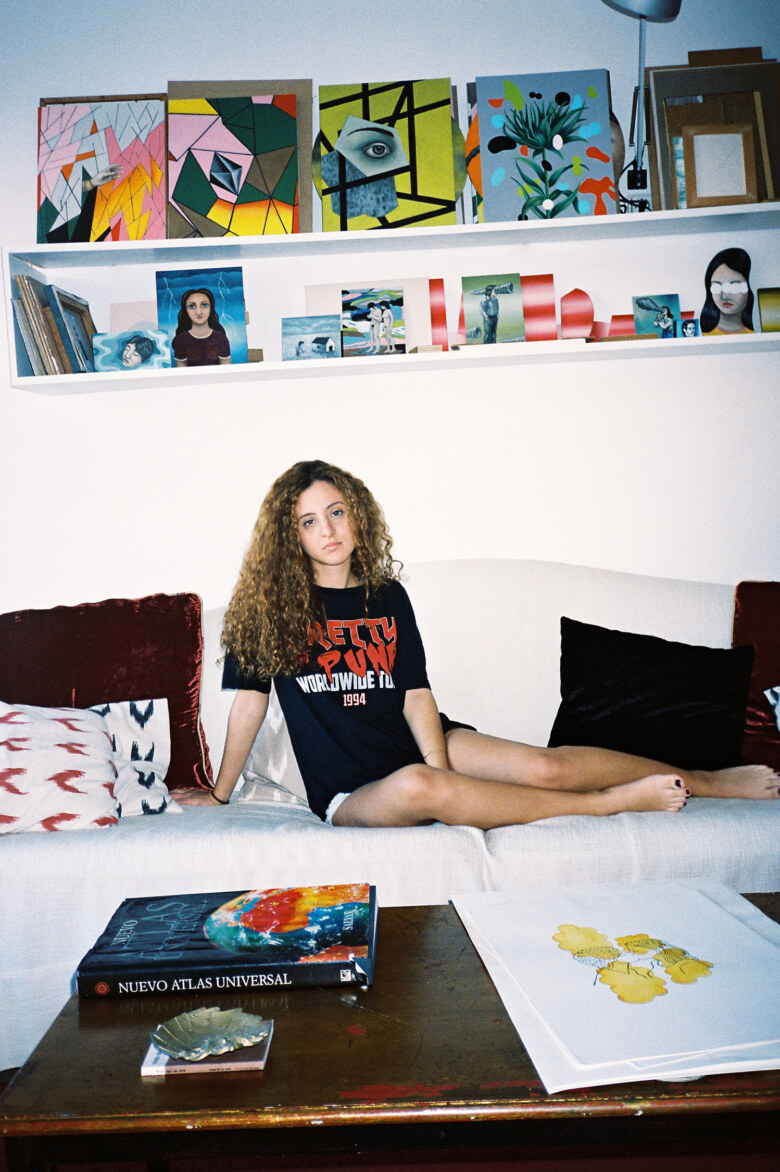
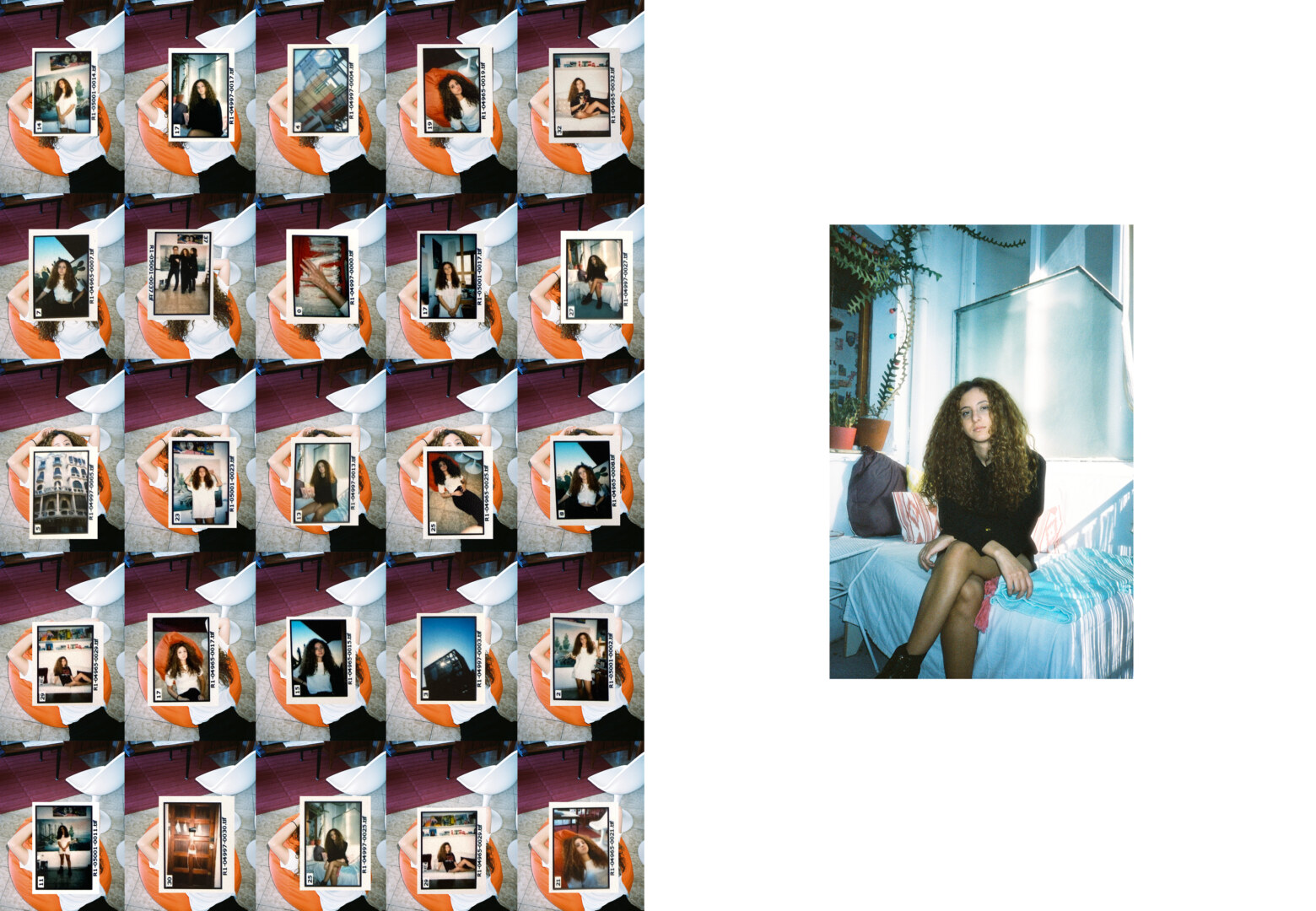
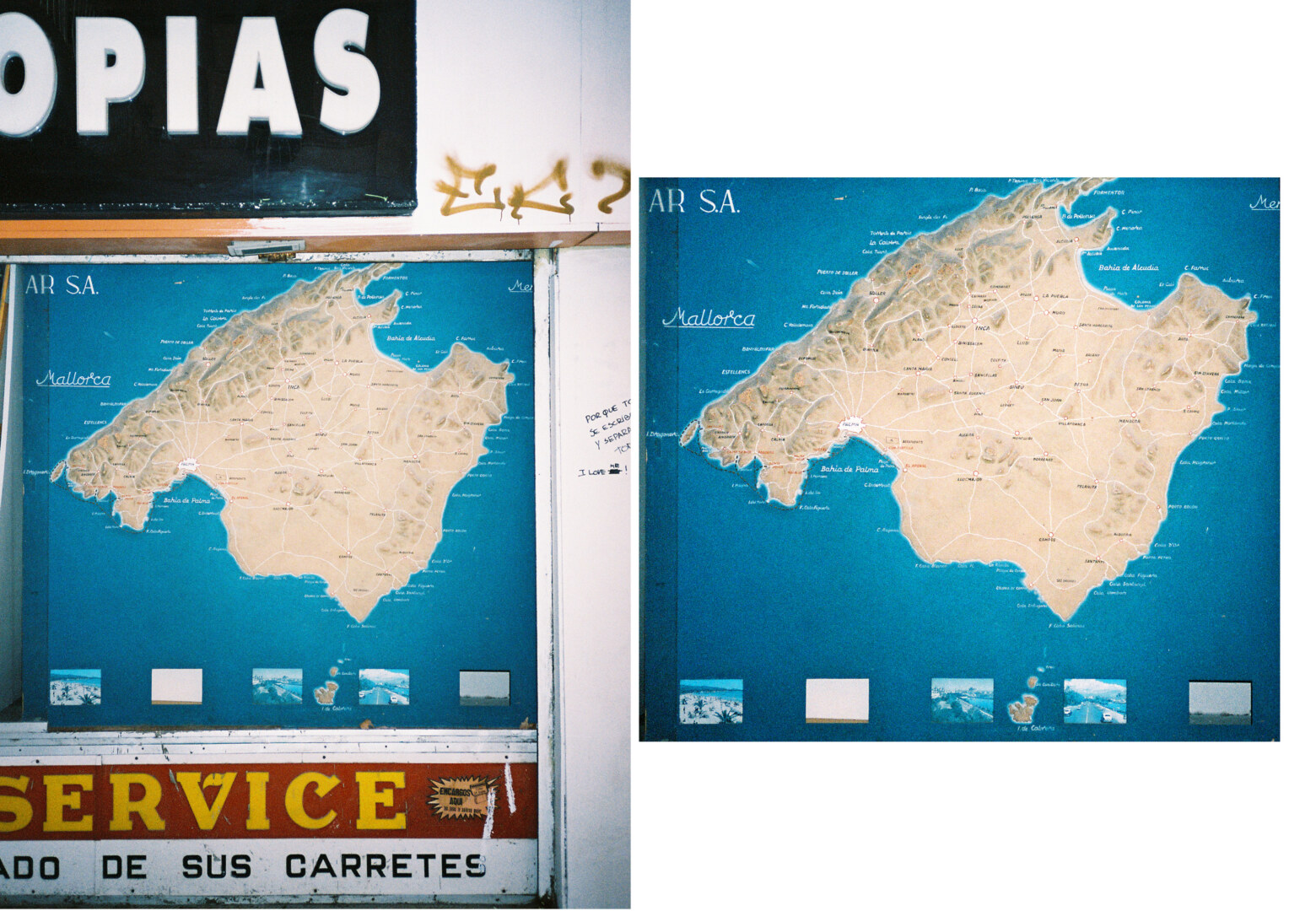
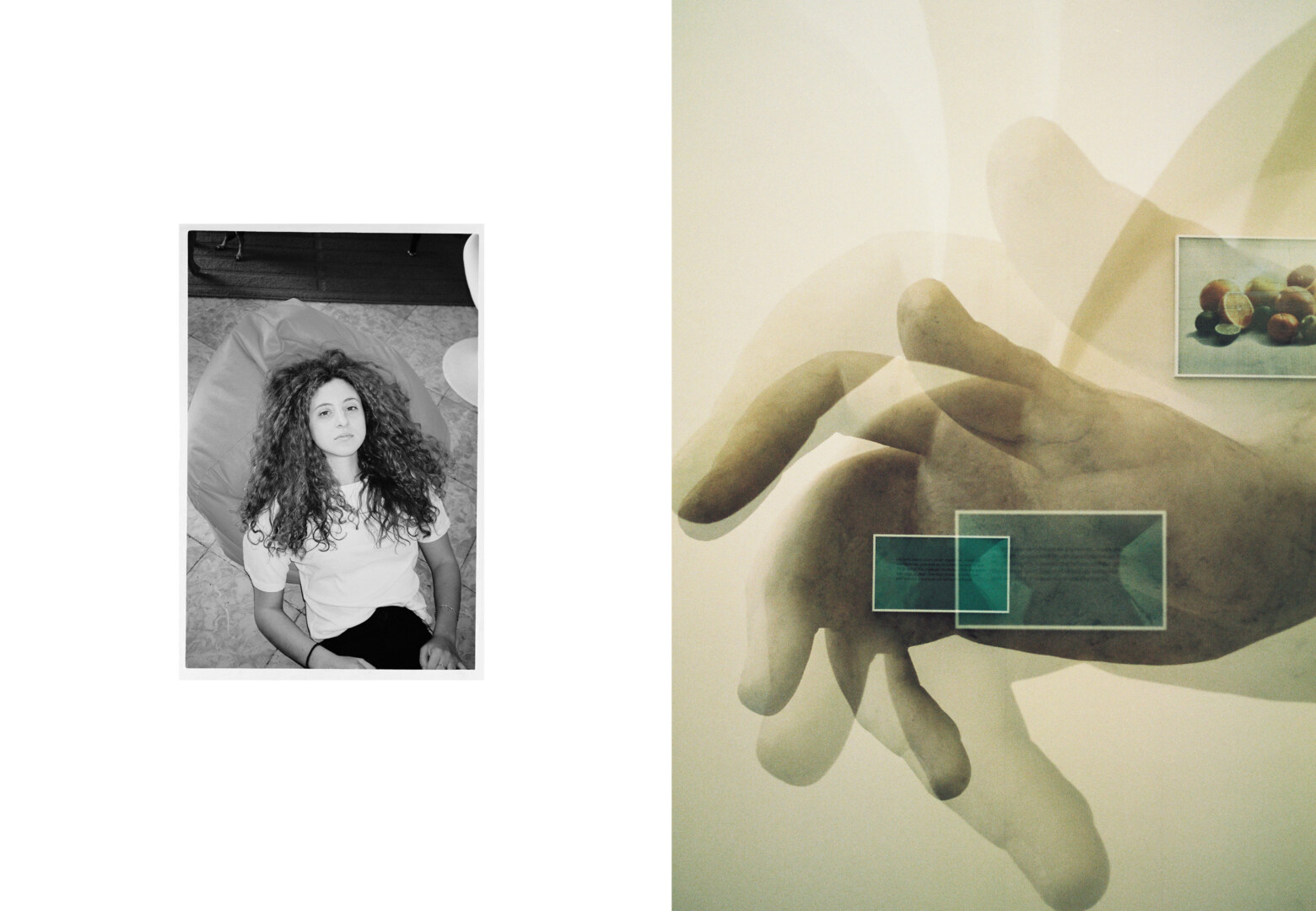
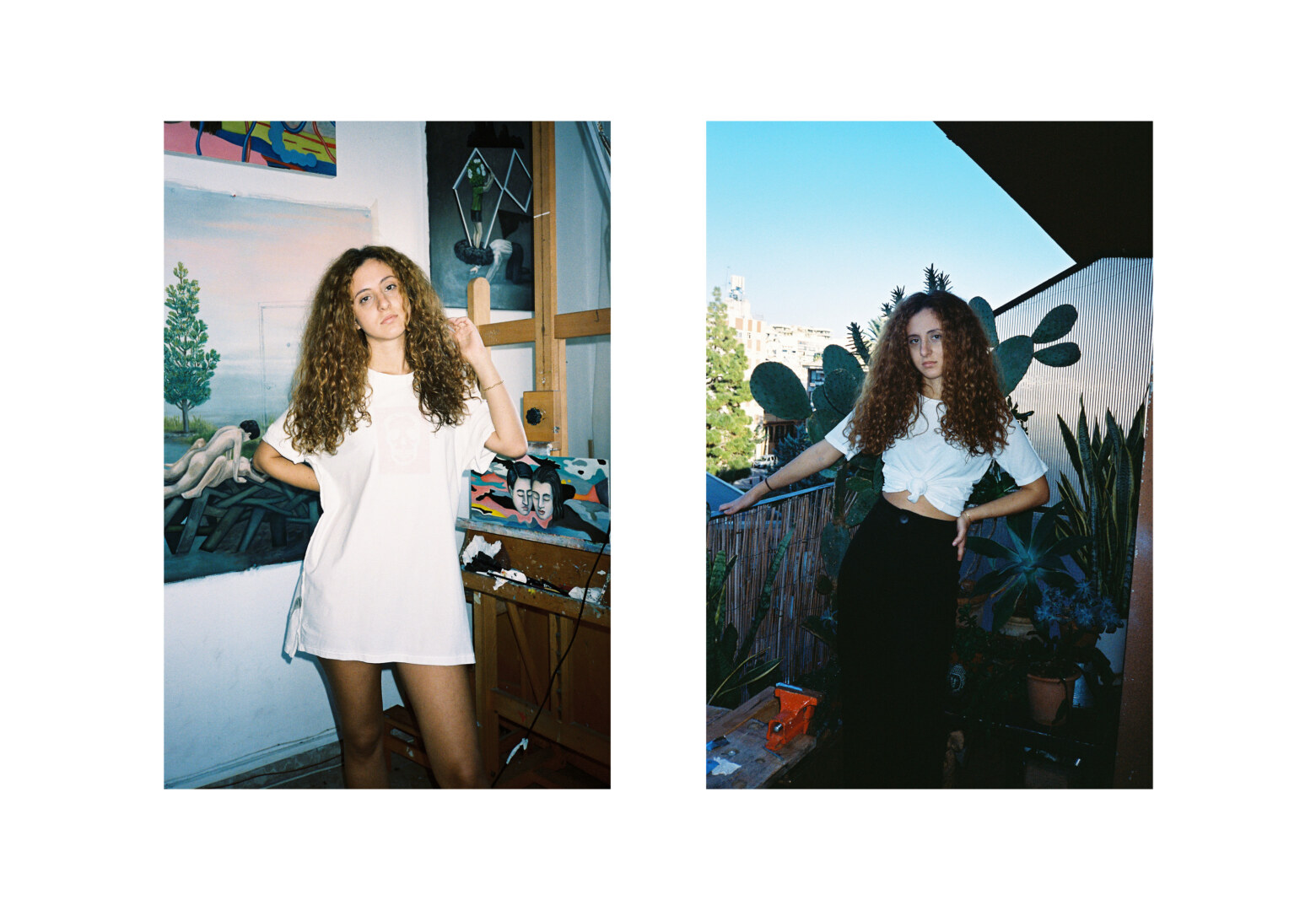
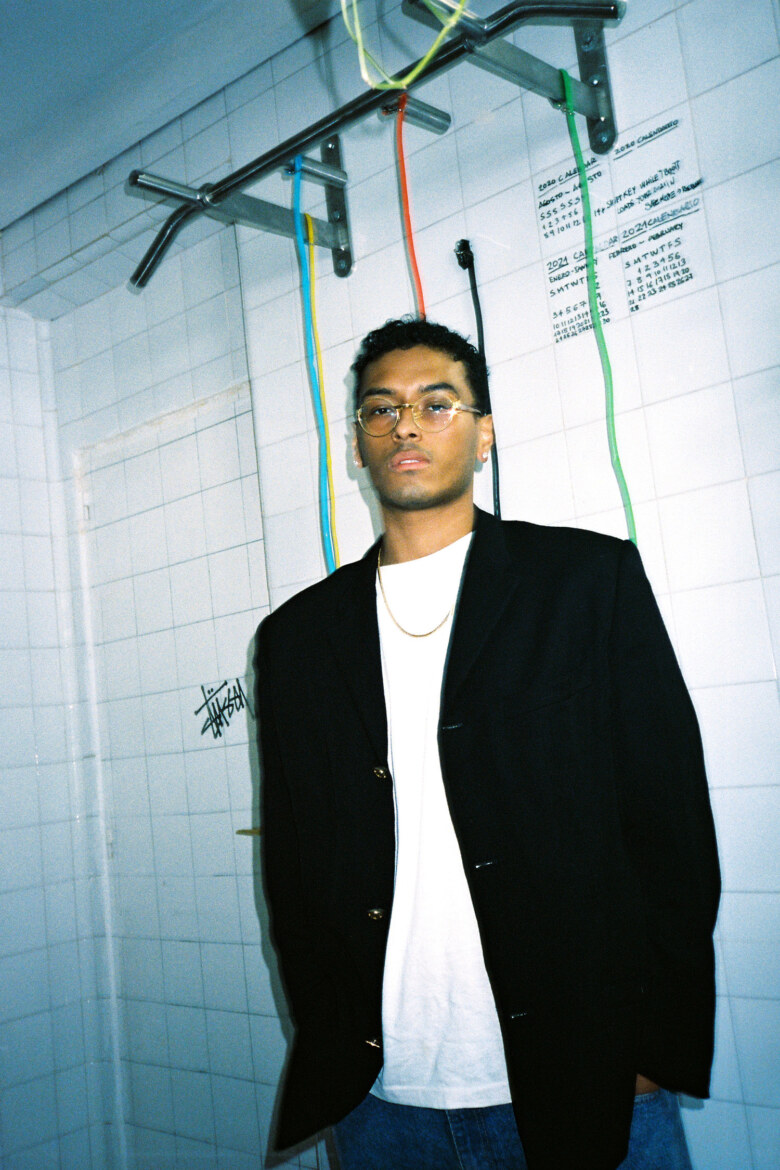
PIERO, 22 YEARS OLD
Piero, tell me about yourself, what you do and why you do it.
I am a 22-year-old boy from Ecuador. Last year, with some friends I founded an art group called Studio 666 in which we develop art with the different disciplines in which we are interested, so I do various things, but what I would like most is to end up doing video clips, commercials and fashion campaigns. I do this because I like the idea of earning enough money to be able to live doing what I like.
When I was a teenager all I wanted was to move to another city because I felt that nothing ever happened here. From the age of 19 my perspective changed and what I thought were disadvantages I turned them around to take advantage of them, that’s when I started to appreciate the place where I lived. In Mallorca I have the ease of being able to “do what I want” while still having and creating connections with other cities, I believe being that here I could progress in what I do. I still have a lot of things I want to do on the island, so for the moment it is a plan for the future unless something better comes along. I don’t like to close any doors.
How would you describe your personal creative scene and friendships in Mallorca?
My personal group of friends is one of the main reasons that changes my perspective about living in Mallorca. I am lucky that in my closest circle everyone is an artist or is into something creative. My friends are the same people with whom I collaborate, from whom I learn and with whom I create things like my art collective, which was born from the actual regular collaborations between us.
As an artist is your work defined by any artist or genre in particular?
As a child, after school, I spent hours watching TV and not doing my homework. My parents worked a lot and could not control me. I saw many things that were not in keeping with my young age, but which gave me part of the culture that I have now. In high school I found what I wanted to see, hear, read, dress, do… a whole lifestyle that I wanted to lead when I grew up. So more than a particular artist or genre, my style is defined by what influenced me watching TV, Tumblr, pop culture, all that mixed with a halo of darkness and irony.
Do you find that as an artist it doesn’t matter where you live as art in itself is generally insular and emotive?
Yes, being an artist it doesn’t matter where you live.
If you could change one thing about living in Mallorca, what would it be (in a general sense)?
In general I feel that people don’t take the risk.
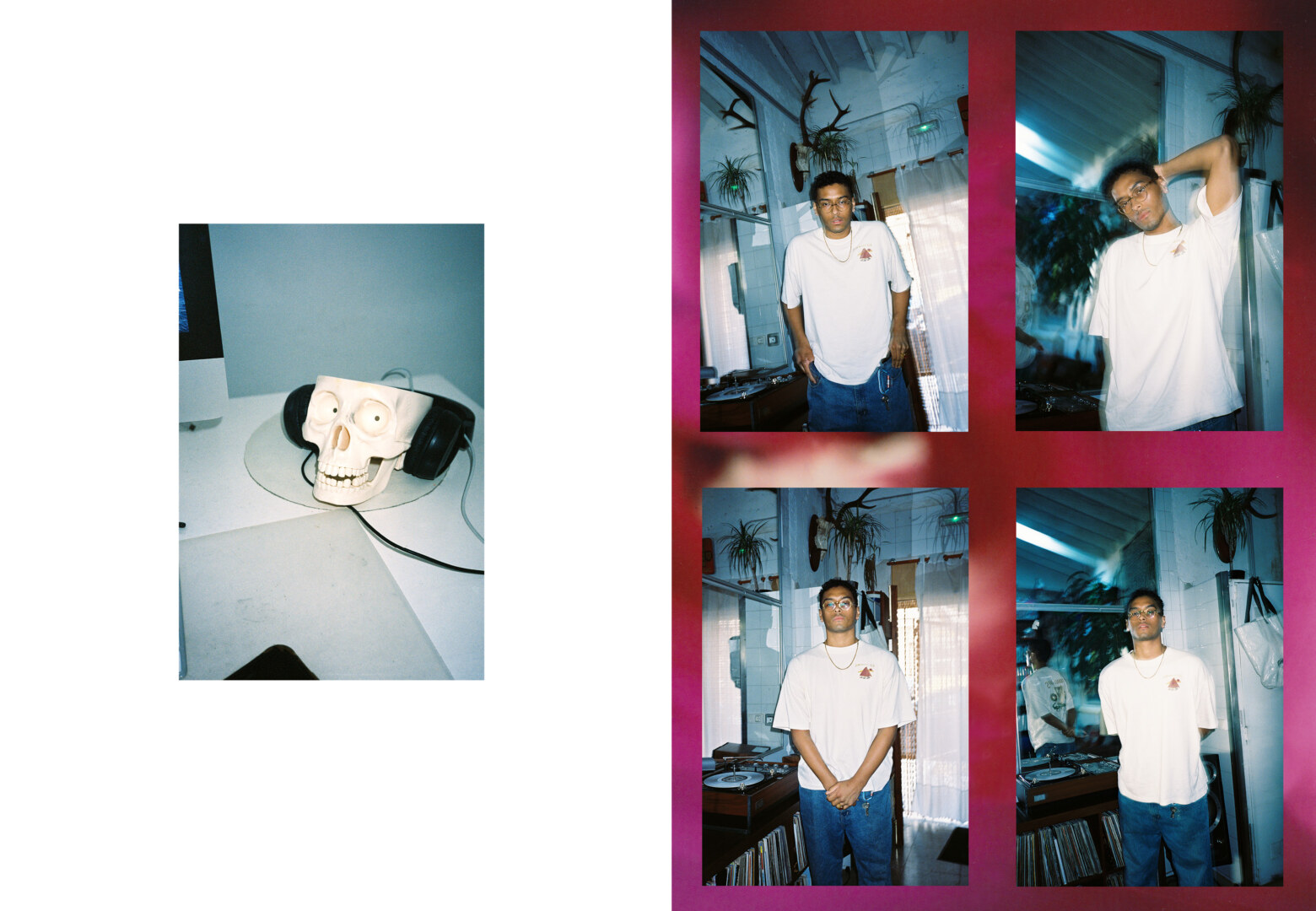
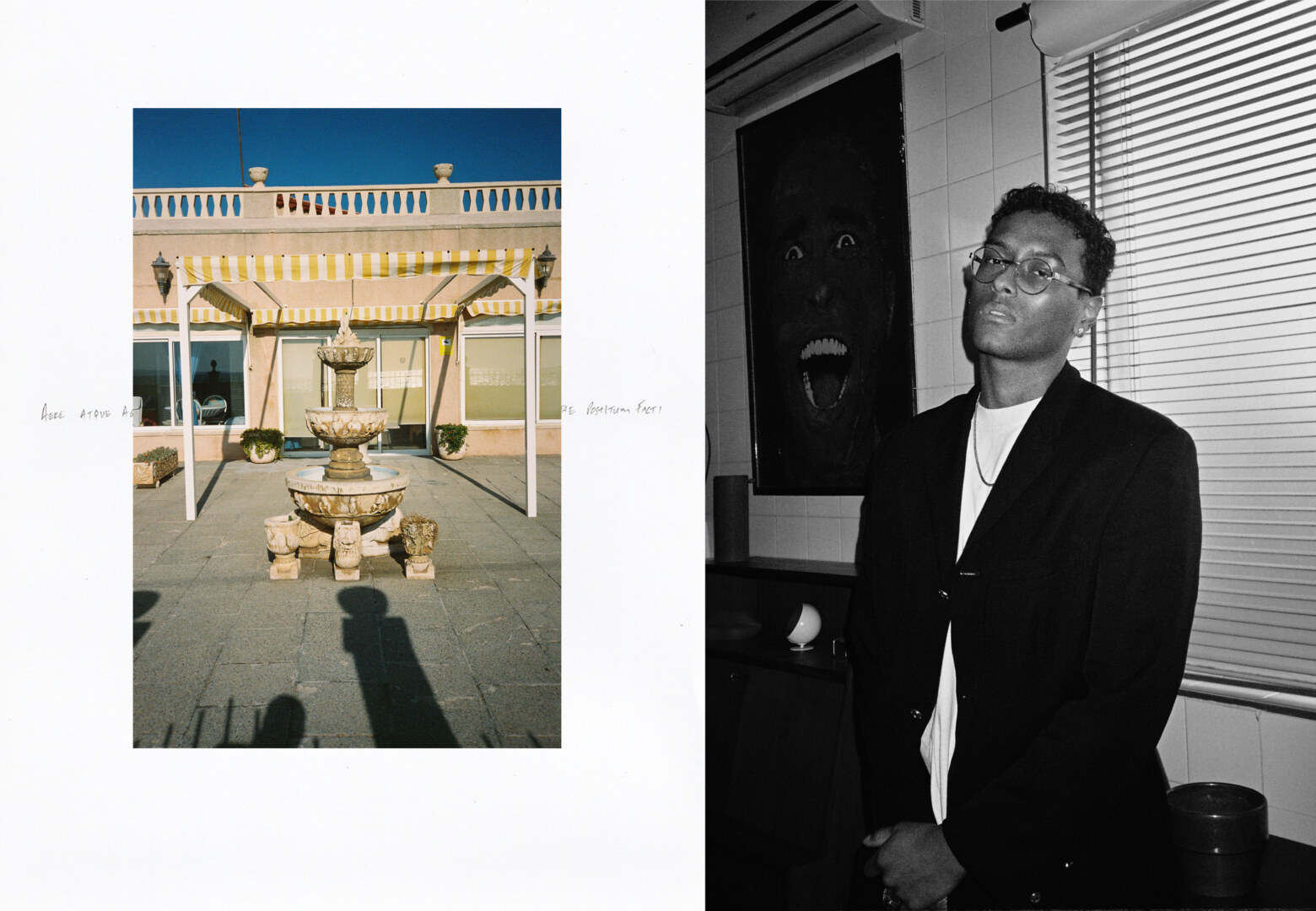
CARMEN, 24 YEARS OLD
Carmen, thank you for being a part of this project. Apologies for getting in touch so last minute and I appreciate your time and getting to know you.
So from what I understand you studied in Leeds. Yorkshire, UK (Where I am originally from coincidentally). I am interested how it was growing up in Mallorca and then spending time in Northern England. Can you summarise the juxtaposition of this experience for me?
Thank you for your visit Ben! I had a very good experience in the UK, I fell in love with the freedom that people live and socialize with: there you can be whoever you want to be! On the other hand, as a Majorcan, in Northern Europe I missed the Mediterranean climate and diet, and it was hard for me to adapt to that frenetic pace of life.
As a young lawyer, but being involved in a social scene which includes people from so many different backgrounds and professions, do you ever feel at all tied to your job at such a young age?
The truth is that it is difficult being so young, to dedicate yourself to something that physically requires that amount dedication and effort as is the legal profession, but I suppose that the sooner you enter this world, the sooner you will mature emotionally and learn to cope with the work and combine it with your personal life.
I think I’m tied to my work, especially emotionally, I still try to leave clients’ problems at the office and not take them home.
Mallorca is, in my opinion at least, an island of extreme contrasts. There are two versions of the island, one of tourists who come over for a week or two a year to live a short time of decadence and release, the other, an almost unnoticed life (to the holidaymakers) of those people who live here all year round. In 2020 due to Covid, there were very few tourists. In all my years of spending a lot of time on the Island I found that it felt somewhat as if the land had regained her soul. How do you feel about the fact that so very few foreigners actually understand anything about Mallorca and come to the island simply as an escape from the mundane / boring reality of their normal lives, and what is that like for someone who lives there year round?
Honestly, I am sad and angry about the image that Europeans have of our island. I feel that we are being marketed as the lawless land, where everything is possible, where nothing has any value. There is a saying in Mallorcan that says ‘You will never find a Mallorcan during the summer in Mallorca’, and I suppose this is somewhat right. In summer we hide, take refuge in the few areas we keep secret. It is a disgrace, both politically and environmentally, that mass tourism is still being promoted and is killing us. We Mallorcans are not getting rich, on the contrary, employment is becoming more precarious and seasonal. This summer, in times of pandemia, has been the first time in a long time that we have been able to come out of our hiding places and enjoy the island again.
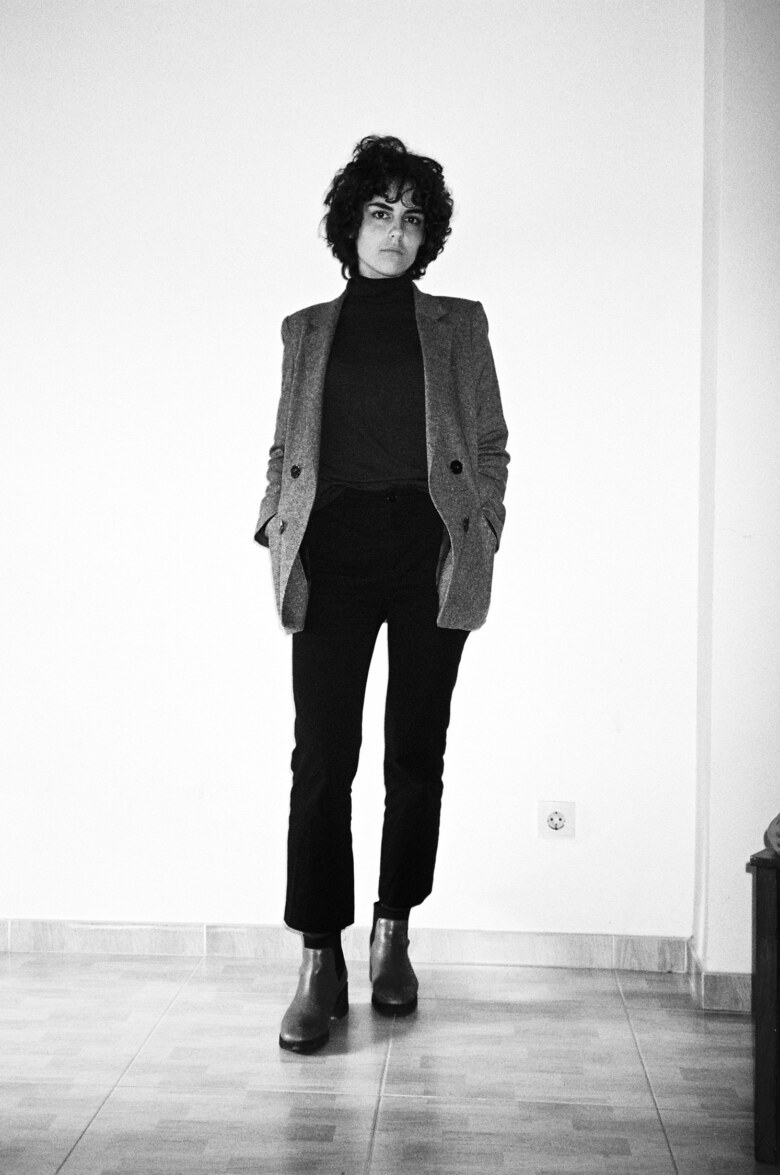
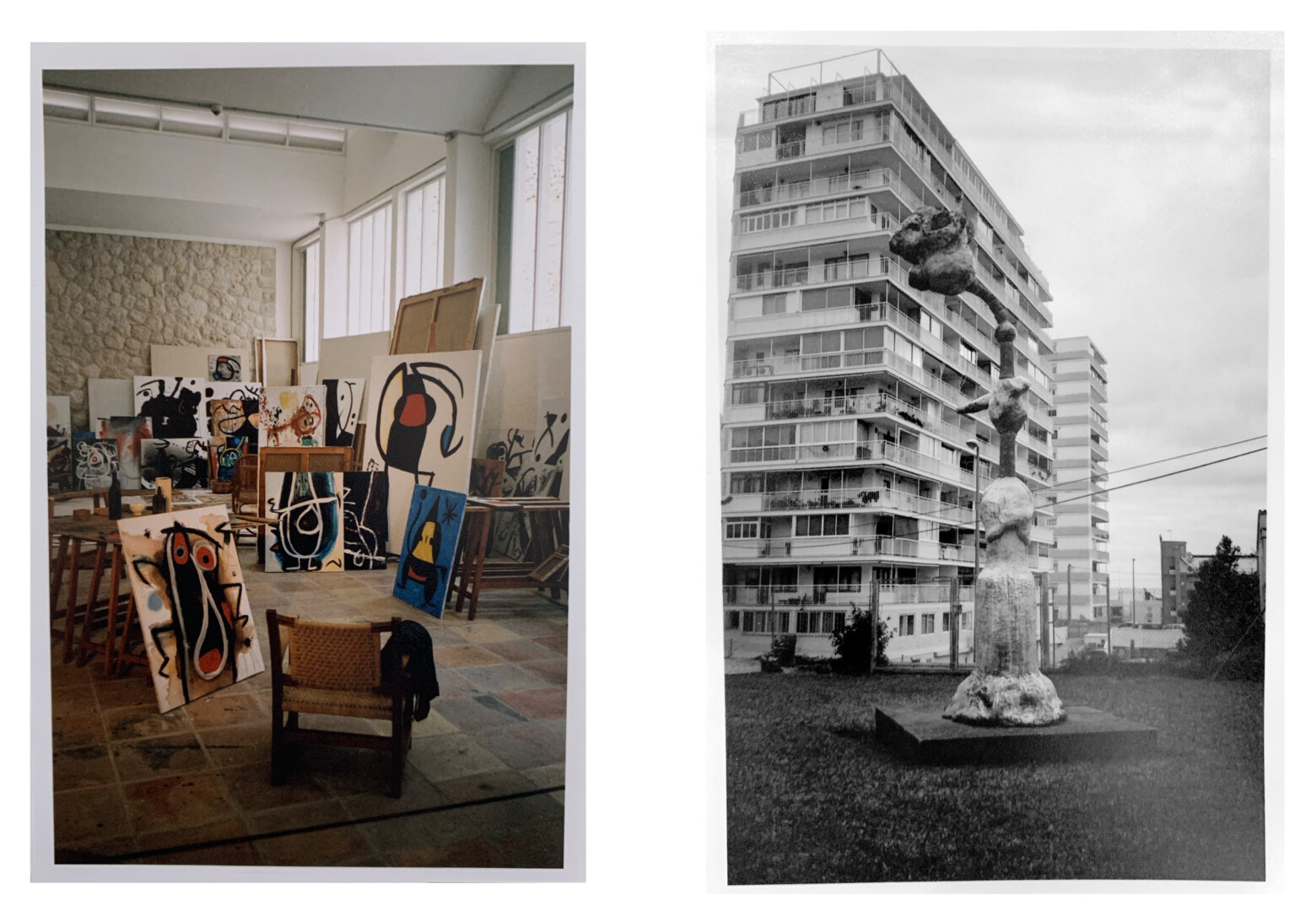
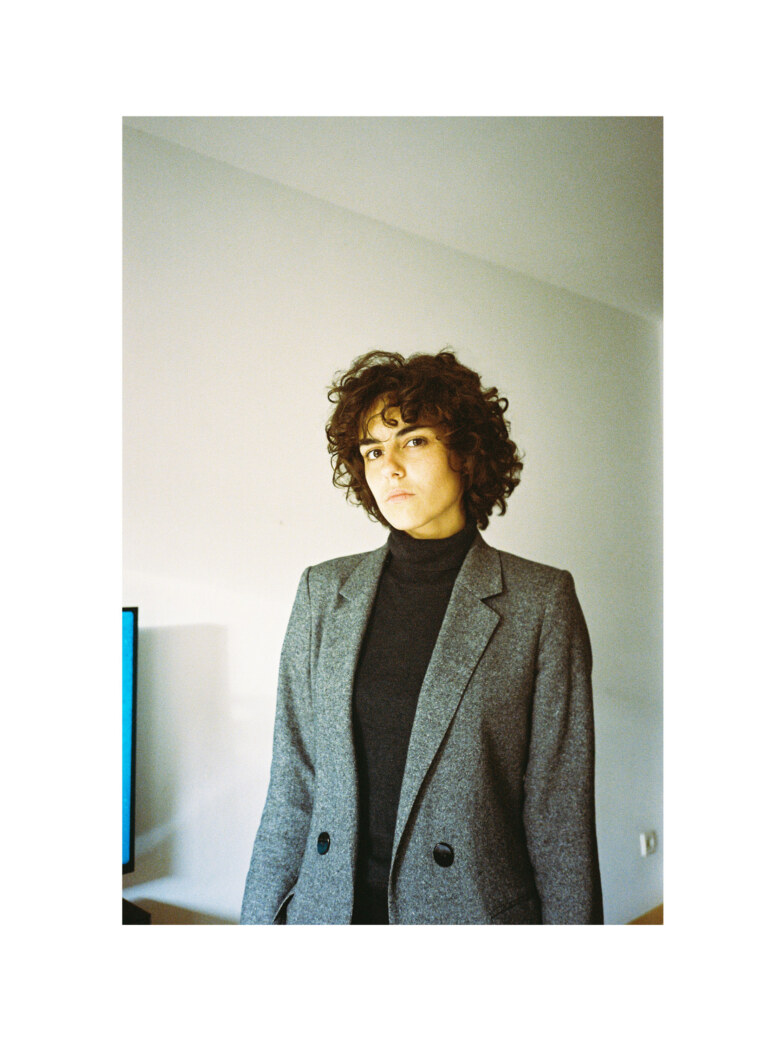
We have been able to breathe in peace, walk around Palma without having to avoid tourists who are red from the sun, swim in clean waters and beaches where you used to have to go at eight in the morning to make room. In short, a relief, a breath of fresh air. I hope that this health crisis will make us rethink the economic model that we want for our island. Why not opt for more sustainable and quality tourism?
Why not diversify the industry and stop depending on the fact that every summer tens of millions of tourists pass by to destroy what is ours?
Away from Mallorca, if you could change one thing about your life right now, what would it be?
Right now I would not change a thing in my life, I am happy in Palma, with my job, my couple, my family and friends. I could not ask for more!
Can culture create itself, or does it have to be manifested from something already created in your opinion? Another way to say that, is everything we do a homage to something that has already been done?
In my opinion, culture, understood as artistic expression, whether it be visual, musical, literary, etc, should be understood as the materialisation of a set of diverse experiences accumulated throughout the life of the individual, in this case, the artist. In this sense, and referring to Pierre Bourdieu, the expressions of our being are not genuine, but the product of our existence in a specific environment and social conditions. That is to say, a painting, a photo session or a poem, exist as forms of objectified cultural capital and are inevitably related to other forms of economic, social or human capital, both to create it and to appreciate it. The culture created is not per se a form of homage to existing culture, and therefore implies levels of fidelity or coherence, but what is clear is that each new work that emerges exists to the extent that the producer of it crystallises his ideas and therefore what he has acquired through his life, and largely through the contemplation of other works.
If you could change one thing about living in Mallorca, what would it be (in a general sense)?
I guess I would eliminate the tourist season to be able to live all year round with the calm rhythm that defines us.
ISABELLA, 22 YEARS OLD
Isabella, if you were to write the last page of your biography for someone to pick up in a book store, what would it say?
Cry Baby.
If you had to pick one band, or musician, just one, that has influenced your life and the person that you are who would it be any why?
This is the question that I am most clear about. At 15 I discovered the group that would influence me in the next few years, introducing me fully into the aesthetic indie music. And that’s the American group “The Neighbourhood”. I adopted their black and white retro aesthetic that characterises their videos, the nostalgic and calm personality. It was a time of experimentation and the beginning of the search for who I was and what style I wanted to follow.
Say in this instance you are the protagonist in the story, how would you describe your style and influences?
Why do we have to be defined by one style when you can have many? I live in a constant spin of influence. Starting with the style that has most marked me, the blogger Luanna Perez, with her grunge rock style from the streets of NY. Going through the colourful palette of Sitabellan wearing the eye-catching wigs and make-up influenced by Jeffree Star. Following, a brief but intense tomboy aesthetic. Soaking up artistic movements from other eras and taking them into my own field such as design, painting or my make-up, I enjoy being a different person every day
What is your personal experience living in Mallorca in 2020, do you feel Mallorca as a whole is culturally relevant for your personal interests?
I started my 2020 living in an art-filled city (Paris), but due to circumstances caused by Covid I returned to Mallorca after the confinement. The reality is that as much as I look for art, fashion, music and make-up, they are scarce after the pandemic. The lack of tourism and the limitations have caused the closure of small galleries, theatres, cinemas, concert halls etc.
Mallorca is full of iconic artists who are forced to leave the island to follow their dreams. In my case I want to dedicate myself to catwalk make-up and editorial but here it is not possible to carry out these studies.
How would you describe the creative scene in Mallorca, not just in Palma, but on the island a whole?
I am lucky enough to meet wonderful people, who play fierce cultural branches, theatre, music, fashion, graphic design, painting etc. But we all come to the same conclusion, there is a need to promote and encourage people to value and support the island’s artistic movement. La Nit de L’art is one day a year fully dedicated to the art around Mallorca.
I started to attend this event when I was 16 years old, at first all the neighbourhoods and squares were full of artists showing their work, but over the years it has fallen into disrepute due to complaints from local residents. Literal, an event that only lasted one day. If you really want to decide on art you have to go out.
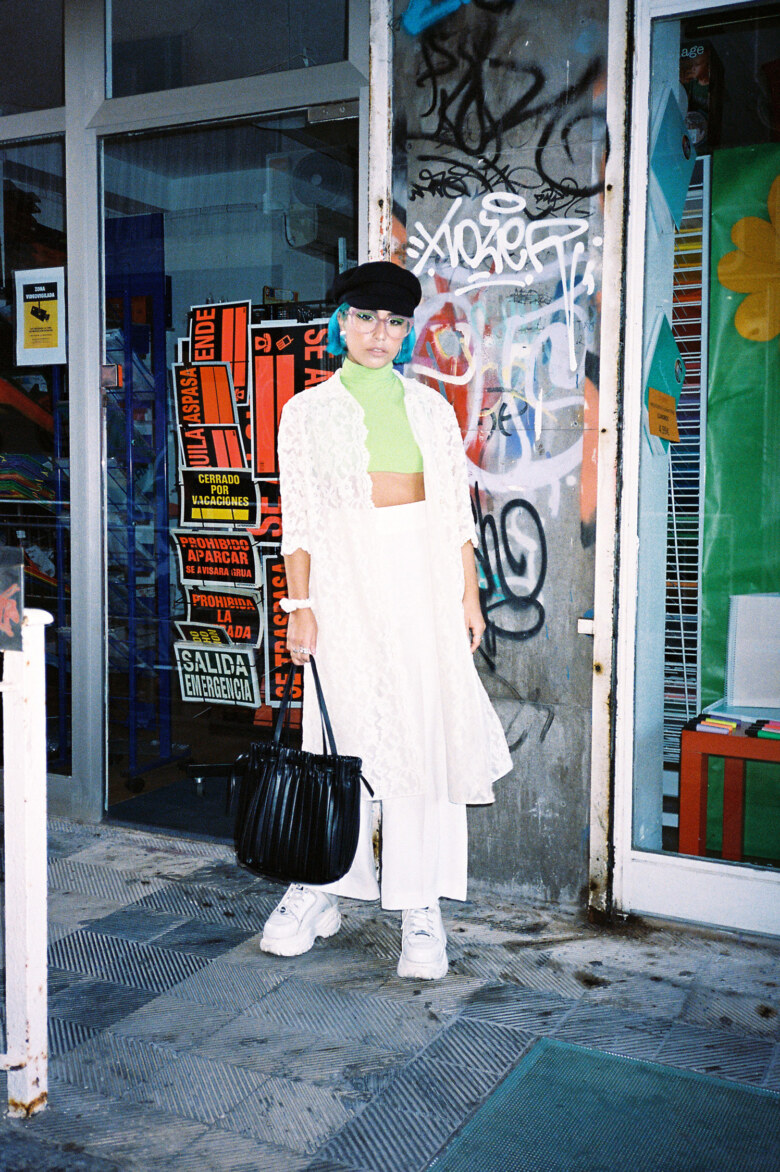
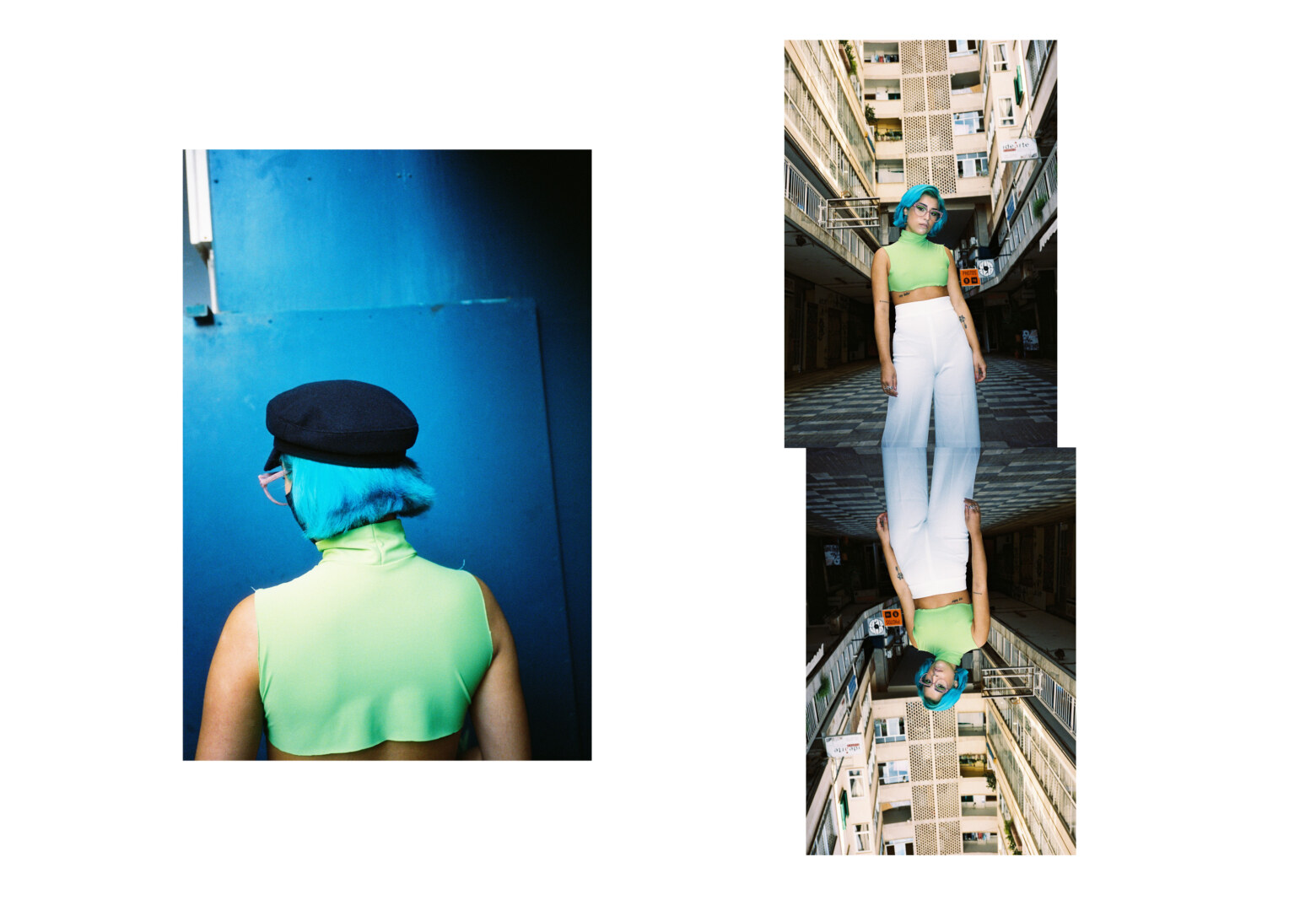
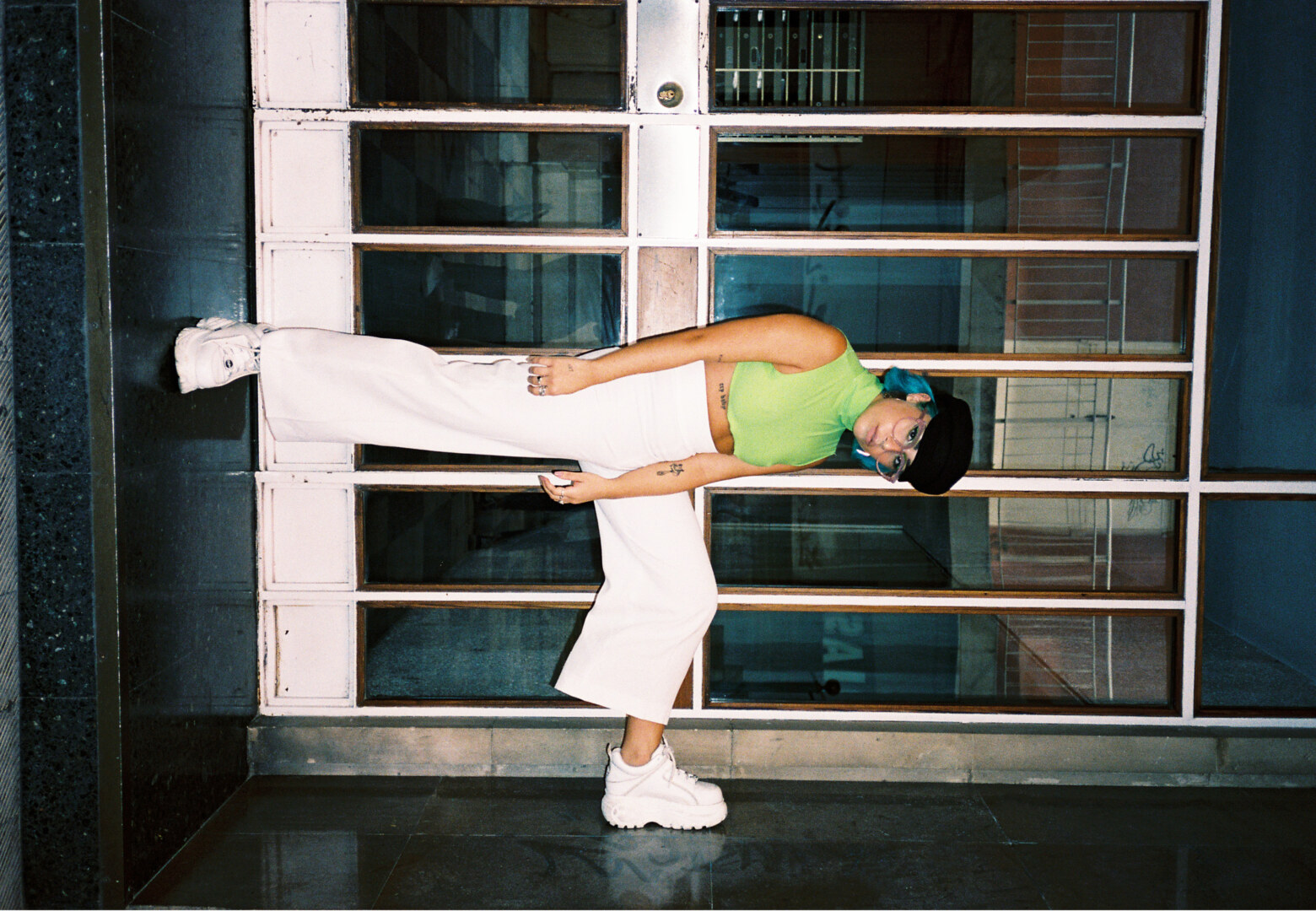
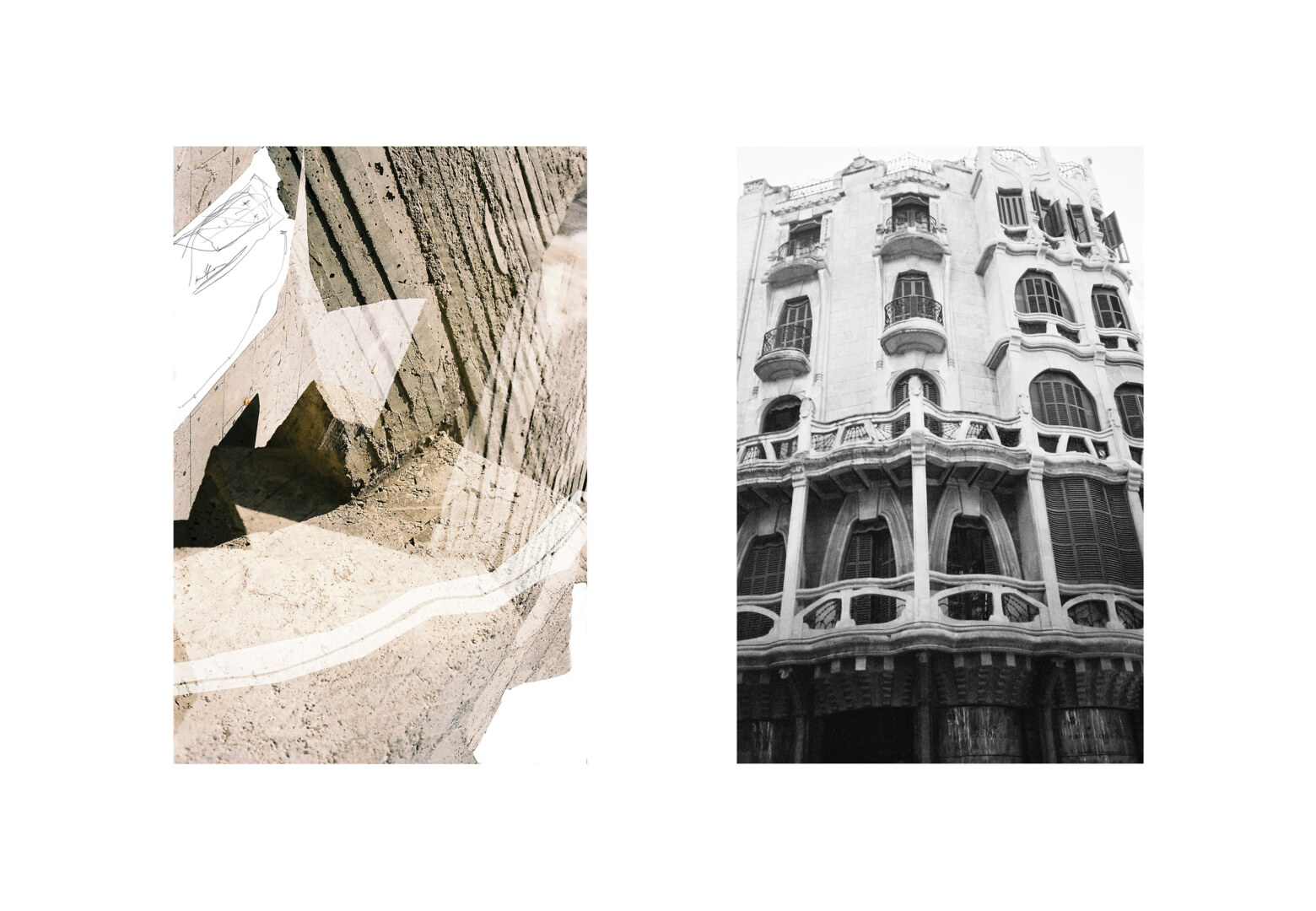
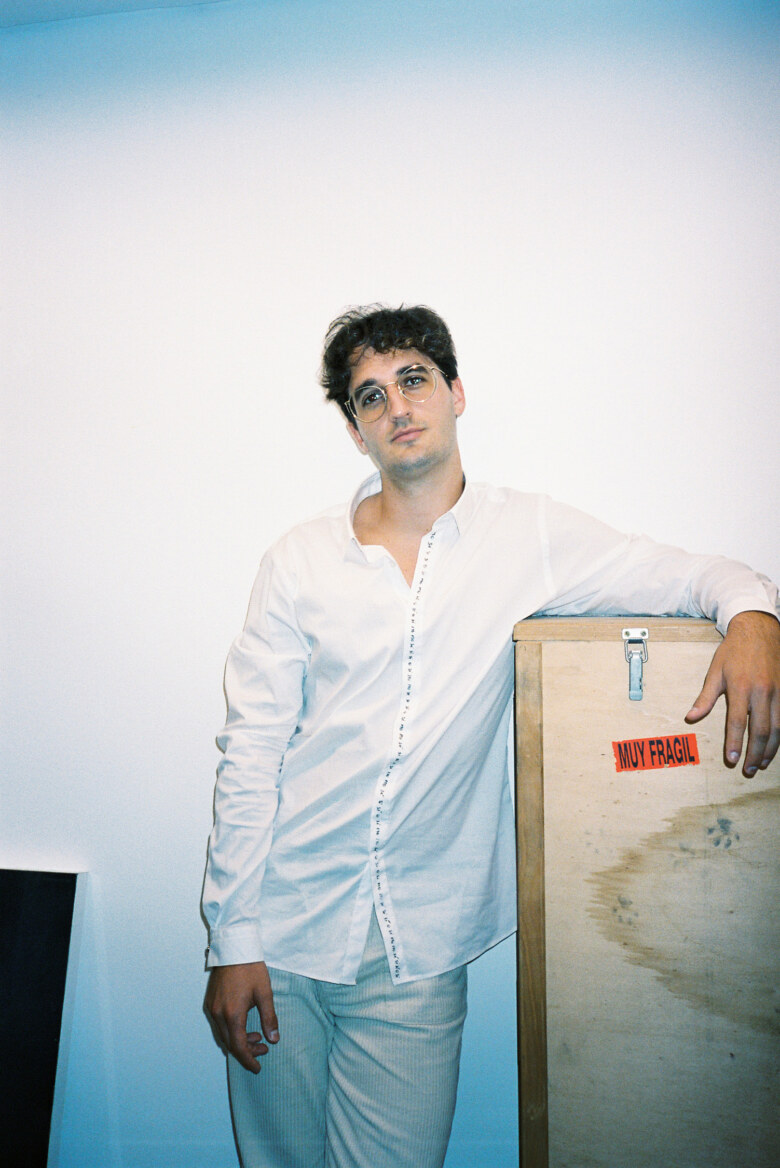
PAU, 22 YEARS OLD
Who is Pau and what does Pau do?
It’s quite funny to speak in 3rd person. I suppose if I met Pau, he’d be someone that exceeds the energy in the room, sometimes too intense and sometimes he’s a bit out there. He seems to enjoy people and their means of expression, since he does music videos, curating, poetry, photographs and anything that he is drawn towards. If you ask me though, I dont know haha, someone who works hard maybe?
I know you recently studied in the UK, and have returned to Mallorca and are now working in Mallorca. How would you compare the creative process that you implore personally now you are back. Are you more inspired or less inspired? Does home have a nostalgia that helps push your ideas for instance?
My process right now is way more introspective, which I like, but it isn’t my usual workflow. I’m used to bouncing off others, and that makes me who I think I am. All my issues stem from there. I never know whether inspiration will find me or I should go find it. I just work, and time will tell what’s worth it. I carry that nostalgic element within me, it’s the people I don’t see. I have a dilemma with having my head in the future and my eyes in the past. I’m learning still.
For you personally, how do you find the creative and social scene in Mallorca?
It’s very rich creatively and very poor socially. Are you cool? I care about you if you’re useful. Are you doing well? I bitch behind your back. It’s too toxic to realise its potential. We aren’t competing with Madrid or Barcelona because they don’t realise.
I think I’ll keep trying to change this, but some other time.
Away from Mallorca, if you could change one thing about your life right now, what would it be?
At this point in my life I’ve got to learn to truly value what’s happening to me. I have massive Imposter syndrome. Being 22, this constant rush is making me forget about every work, event, book or film I make way too rapidly. I’d like to sit for a moment and look, listen, taste.
Matisse said “Creativity takes courage” – do you agree?
I’m more of a Picasso thinker. Work and things will speak for themselves. In the end it’s all communication. Communication requires courage. Thank you Patrick for making me realise.
If you could change one thing about living in Mallorca, what would it be (in a general sense)?
I think I am (changing this) and I think I will change this.
I’d make people get interested into other people. Not interested in themselves with other people, but actually interested in others and not on what can be obtained from them. Being truly into listening, supporting and seeing someone grow. I’d like us to look to our side and see we are many, we are great, but we are not going together.
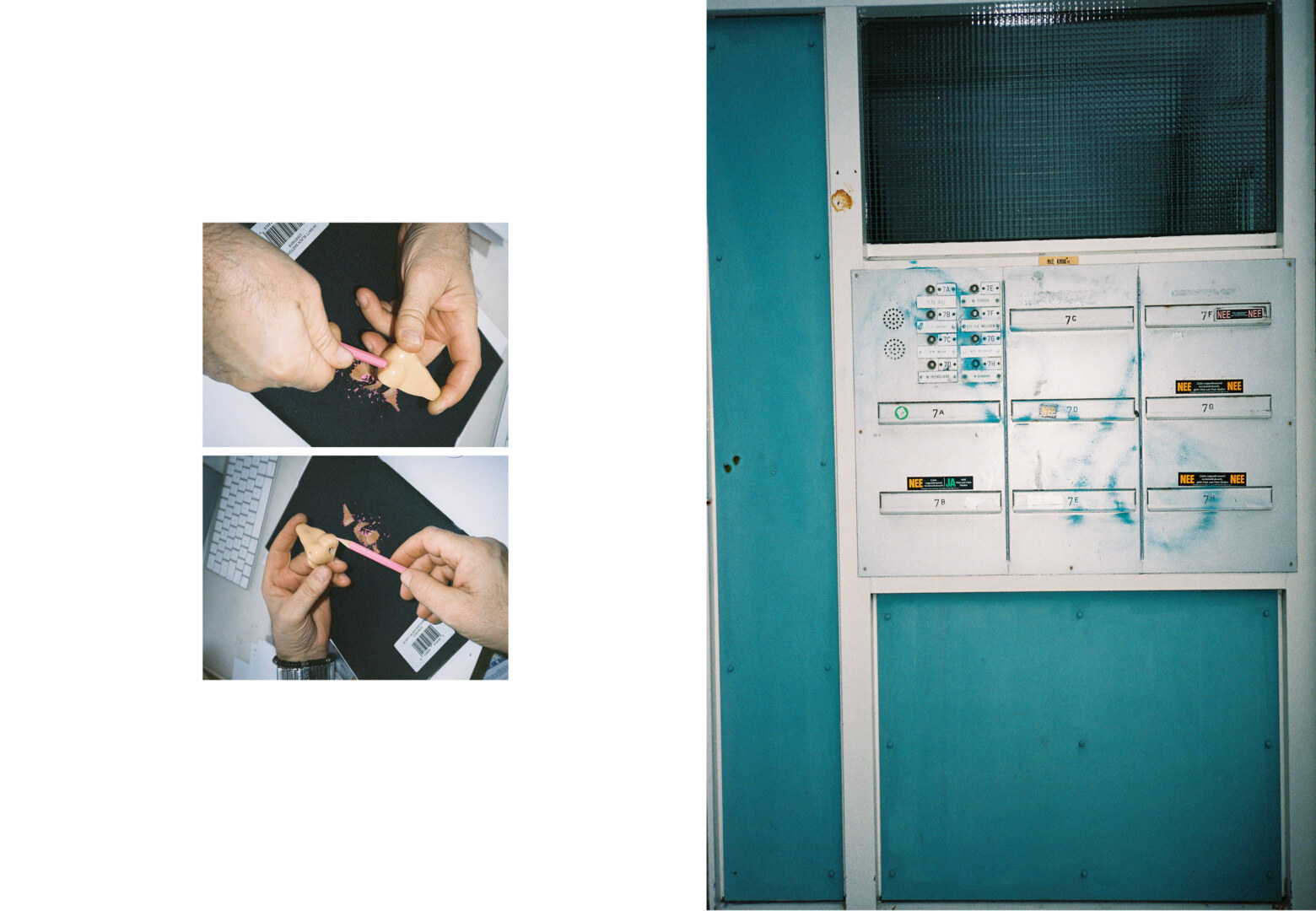
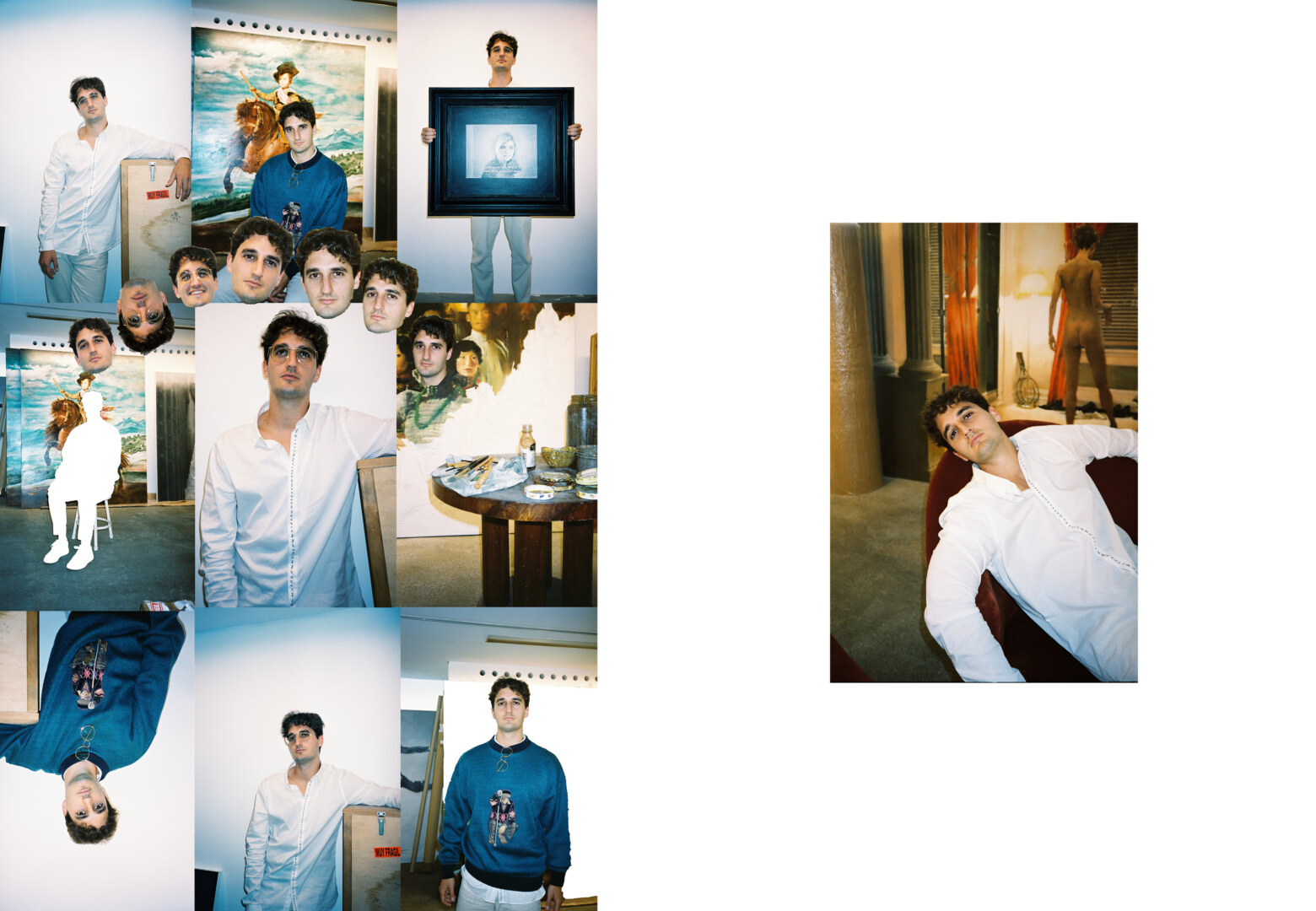
MARINA, 22 YEARS OLD
Marina, tell me about yourself, who you are and what your aspirations are.
I am 22 years old, and I am a student of journalism. During my career I have discovered that my passion is fashion marketing and I would be fascinated to work on the communication of a brand that inspires me. I am a perfectionist at heart and that makes me the kind of person who focuses a lot of myself on few, but ambitious objectives.
Describe to me your personal style, and if any, anyone who influences your style.
My personal style could be defined as classic with urban touches. I like to look elegant. My favourite brands, and the ones I dream of working with someday, are Balenciaga and GCDS. As for the fashion world, my inspirations go hand in hand with my musical tastes. In my playlist you can find Bad Bunny, The Weeknd, Burna Boy and even Chiquete. I am also inspired by the beauty, in movies, in videoclips, in magazine covers. I consider important the acceptance of different bodies and factions.
In terms of the power of social media for your generation specifically, do you personally think this a negative or a positive part of daily life?
Media could contribute to the democratisation of society. They could help those who do not inform themselves beyond their favourite platform. Nowadays with the inclusion of social networks we can more easily get to know both sides of a story. Media outlets also inform themselves on social networks, there is news nowadays coming out of Twitter. To me it is interesting that society has a voice on the internet, our terms such as morality and justice are more supported from this.
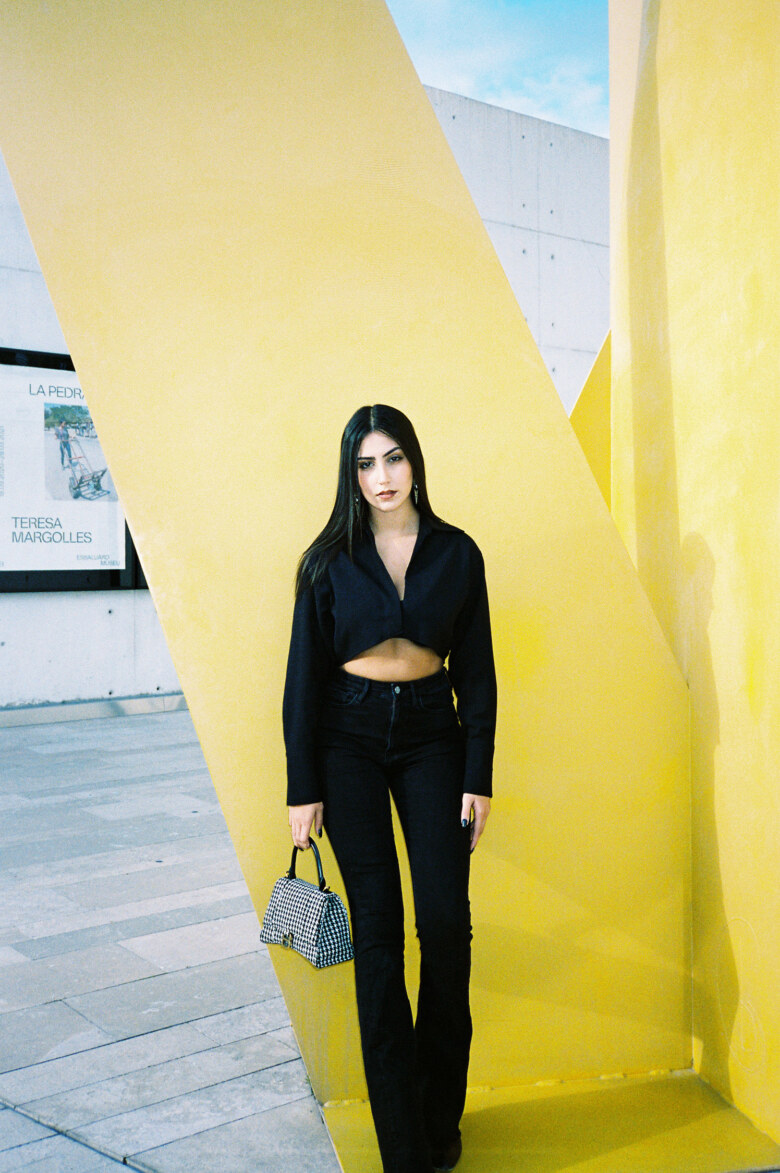
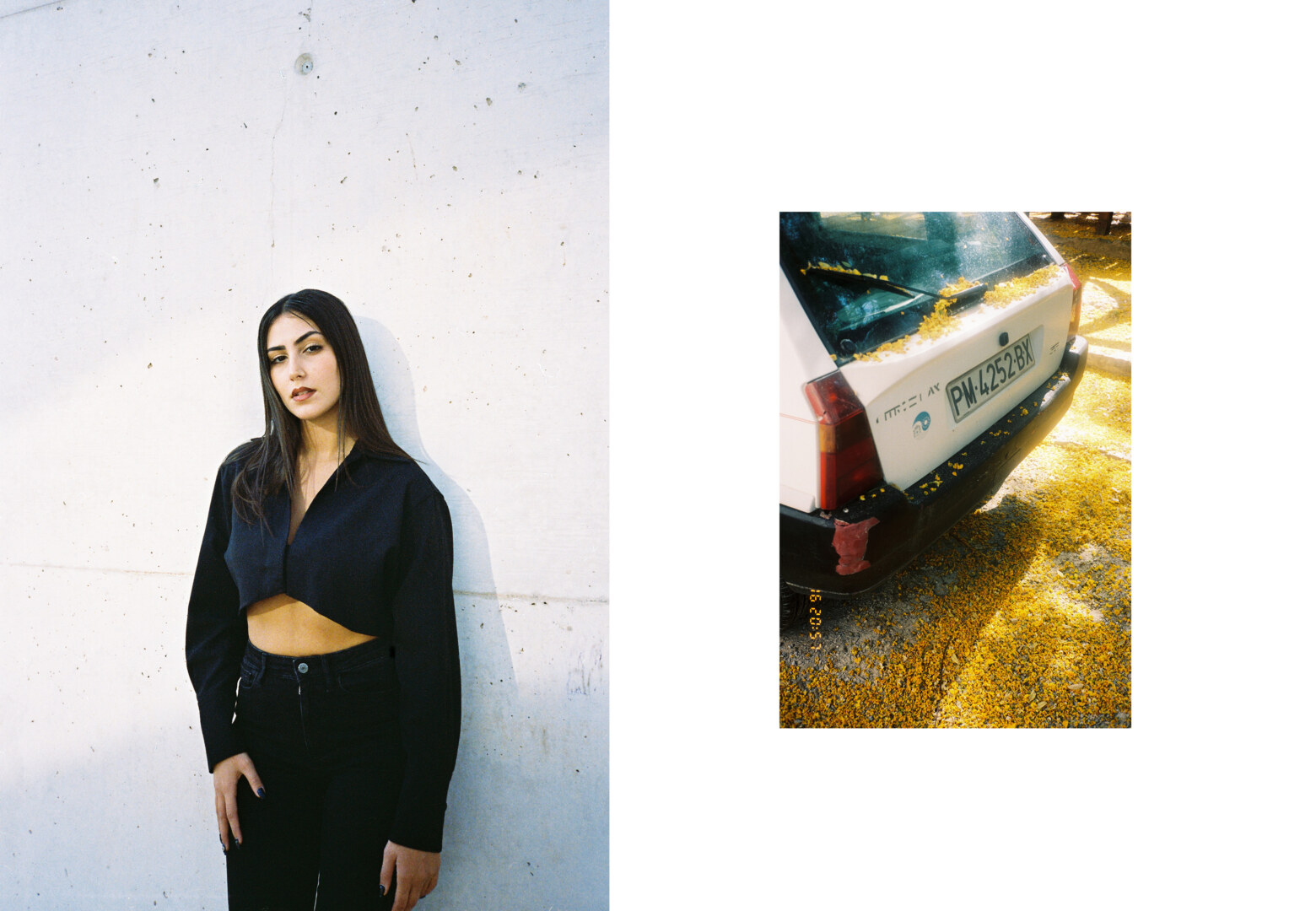
Youth Culture in Mallorca – how would you explain this to someone who has never visited the island, in terms of your own personal perspective. Is it relevant, is there a scene that is unique to Mallorca?
Something I would miss if I had to live off the island is the climate. It’s always a nice day and plans for the outdoors or on a terrace are always attractive. Gastronomically it’s a very beautiful place to be, there are fabulous markets and you can eat great food in a restaurant at affordable prices. The Mediterranean diet is wonderful and the views can be the extra detail to make a simple dinner between friends seem magic.
‘The person that lives in the city, dreams of the silence and the calm, the person that lives on the island, dreams of the buzz and excitement of the city’ – do you think that there is a symmetry between these two ideals and if so where do you stand with that idea?
Clearly, in a league like Mallorca you are on both sides of the coin. You can choose to chill on the beach or in the mountains but you can also enjoy Palma, its urban culture and the mediterranean nightlife – I have travelled a lot in recent years and in few places the balance of tranquillity and activity is so equal.
If you could change one thing about living in Mallorca, what would it be (in a general sense)?
I would personally like to see more cultural events related to the world of fashion, after all Mallorca is an island and the big events tend to take place in the busiest cities. However, for an island it is very multicultural and our culture is gaining more and more weight, for example, in cinema. A few weeks ago I attended a local film festival and it was quite good. Being 22 years old I was struck by the active side of Mallorca, the partying and the places to have a good time.
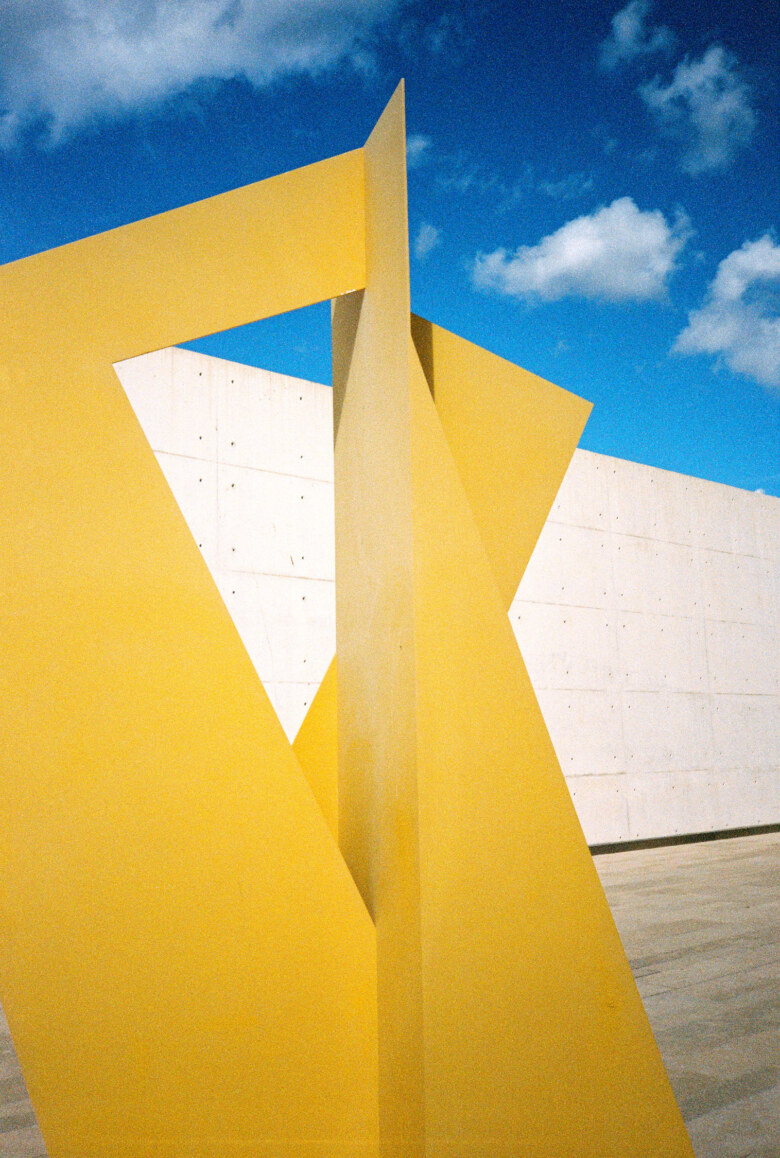
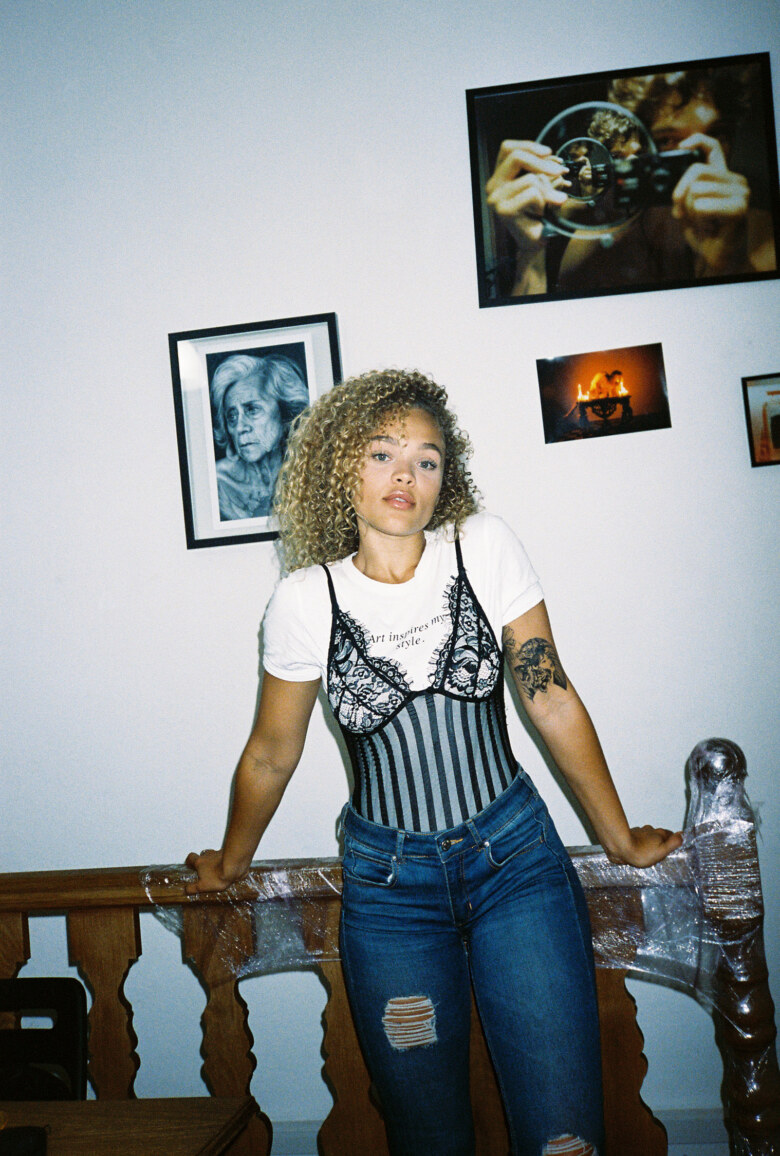
SELENA, 24 YEARS OLD
Selena, having spent time with you, and also having a tattoo from you, I have the impression that you are a very free spirited person. Does living on an island ever make you feel claustrophobic?
Hahahaha, my pleasure to know you – thank you!
No, not at all, living on an island like this is a privilege because I can enjoy both the sea and the mountains at the same time, and I have the possibility to go out whenever I want.
Youth Culture, by it’s own very terminology is a way of life that is very different from older generations and older expectations. Do you feel that with a lot of tradition within the older generations in Mallorca, younger people are a lot more expressive now in 2020 than say 20 years ago, and do you feel personally that Mallorca has a creative young scene?
Indeed, young people have progressed, they have their own ideas, they are autonomous in their way of being and thinking, and also with many expectations that hopefully will lead them to develop or perform in many cultural, artistic, dynamic aspects of their lives.
If right now you could be anywhere, including Mallorca, where would it be? And why aren’t you there?
Right now I would love to be in one of those two places I dream of and I am not there because there is a thing called a global pandemic, I don’t know if you knew about this hahaha!
It is a joke drama, although yes, I am not there because of the travel restrictions that are in place now.
“To belong nowhere is a blessing and a curse, like any kind of freedom” Does this quote relate to you in any way, if so how?
In a way if, if we take it to the theory I belong to Mallorca. I was born here, but in practice I do feel Mallorca as something very much my own as well. I have always said that I am a citizen of the world, no matter how much you are born in one place, you may feel your home in another part of the world that you cannot even imagine, or even in one person, and the good thing about that is that you are always in constant movement, discovering this incredible world.
If you could change one thing about living in Mallorca, what would it be (in a general sense)?
That there should be a regulation that obliges everyone who lives on the island, and who comes to enjoy it, to take care of it. Once I was in Providencia, an island in the Caribbean Sea near Nicaragua ,where they asked you a series of requirements to ensure that you would take care of the island and see it enjoyed in its magical simplicity, so this would be a subject that I would change for Mallorca.
–
SIDE-NOTE acknowledges the Eora people as the traditional custodians of the land on which this project was produced. We pay our respects to Elders past and present. We extend that respect to Aboriginal and Torres Strait Islander peoples reading this.
